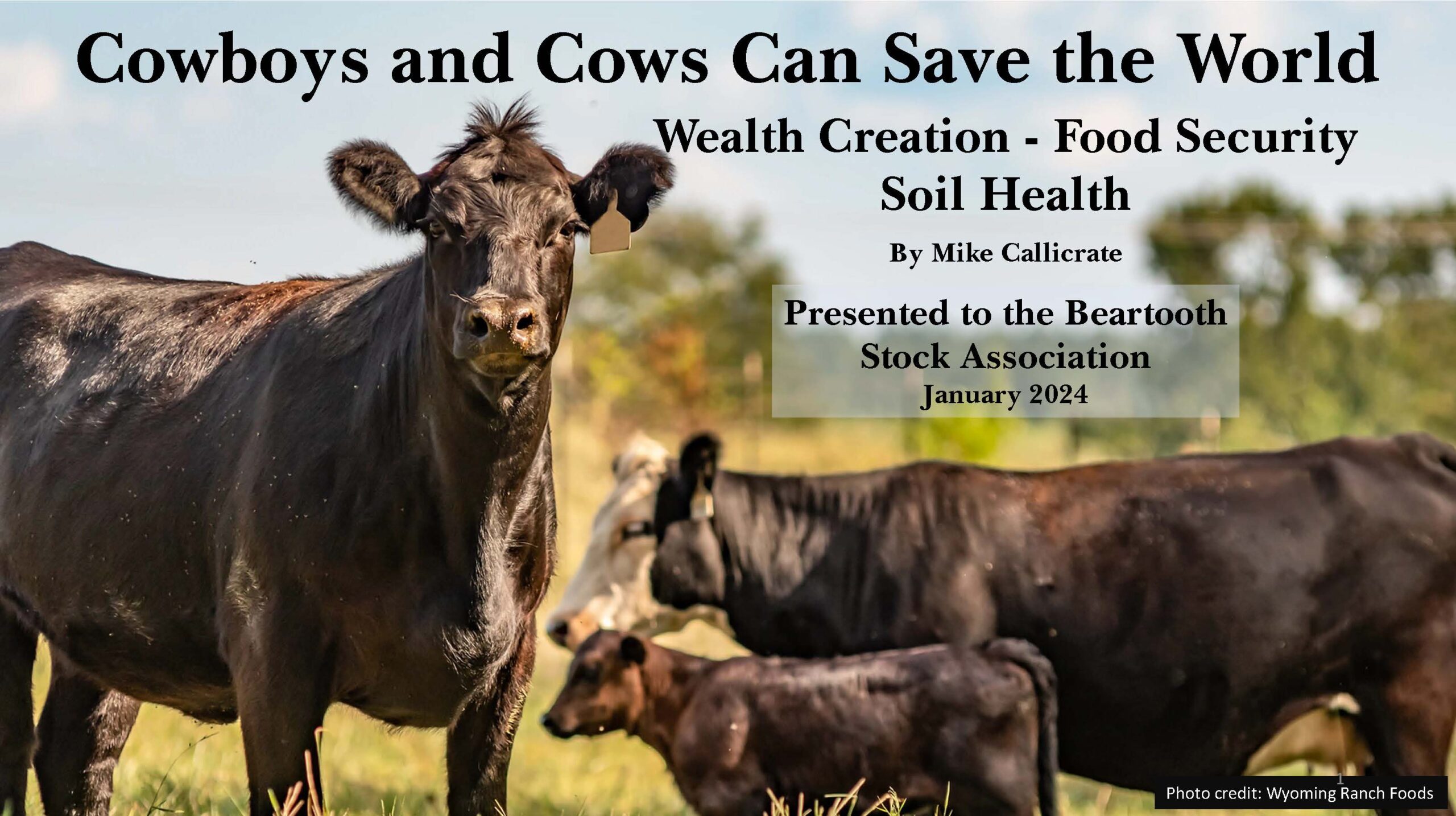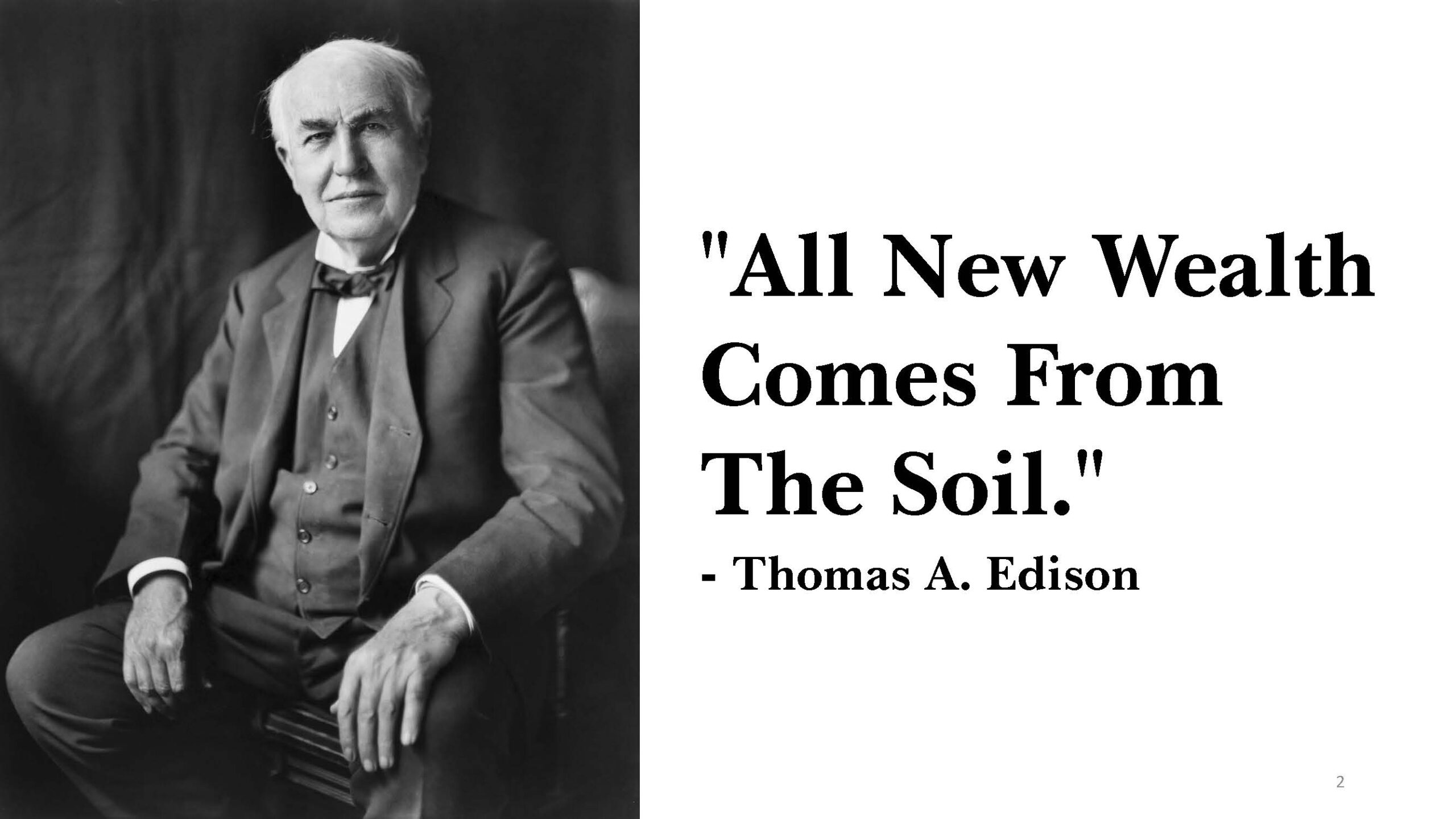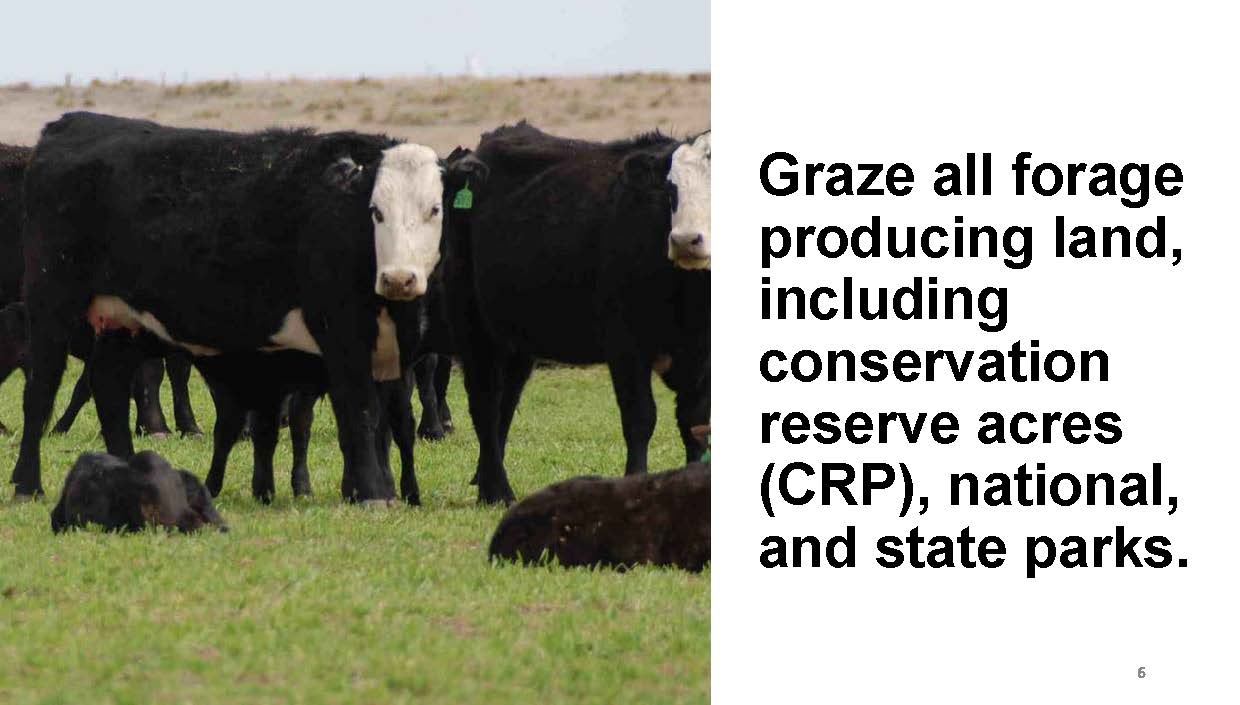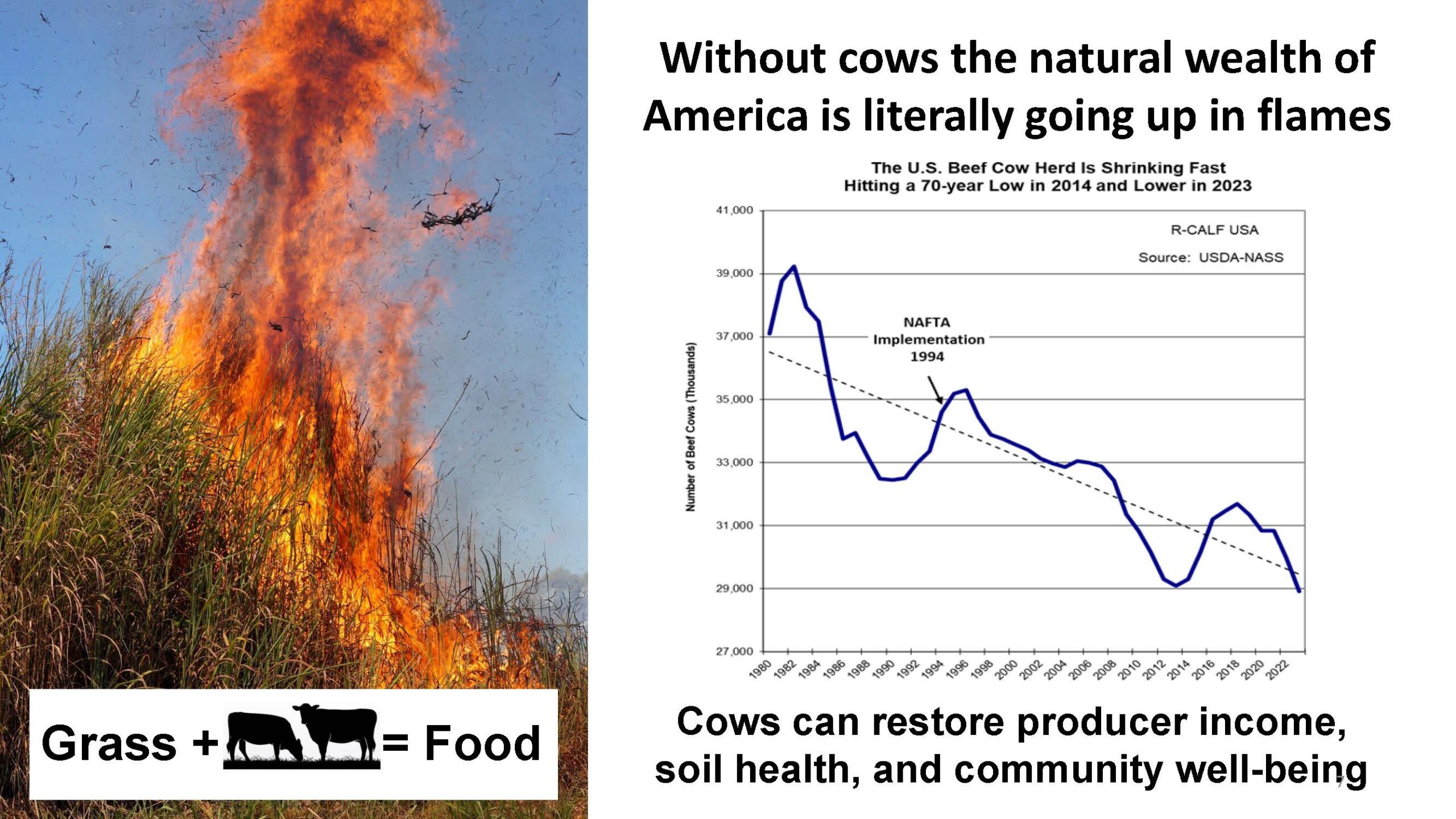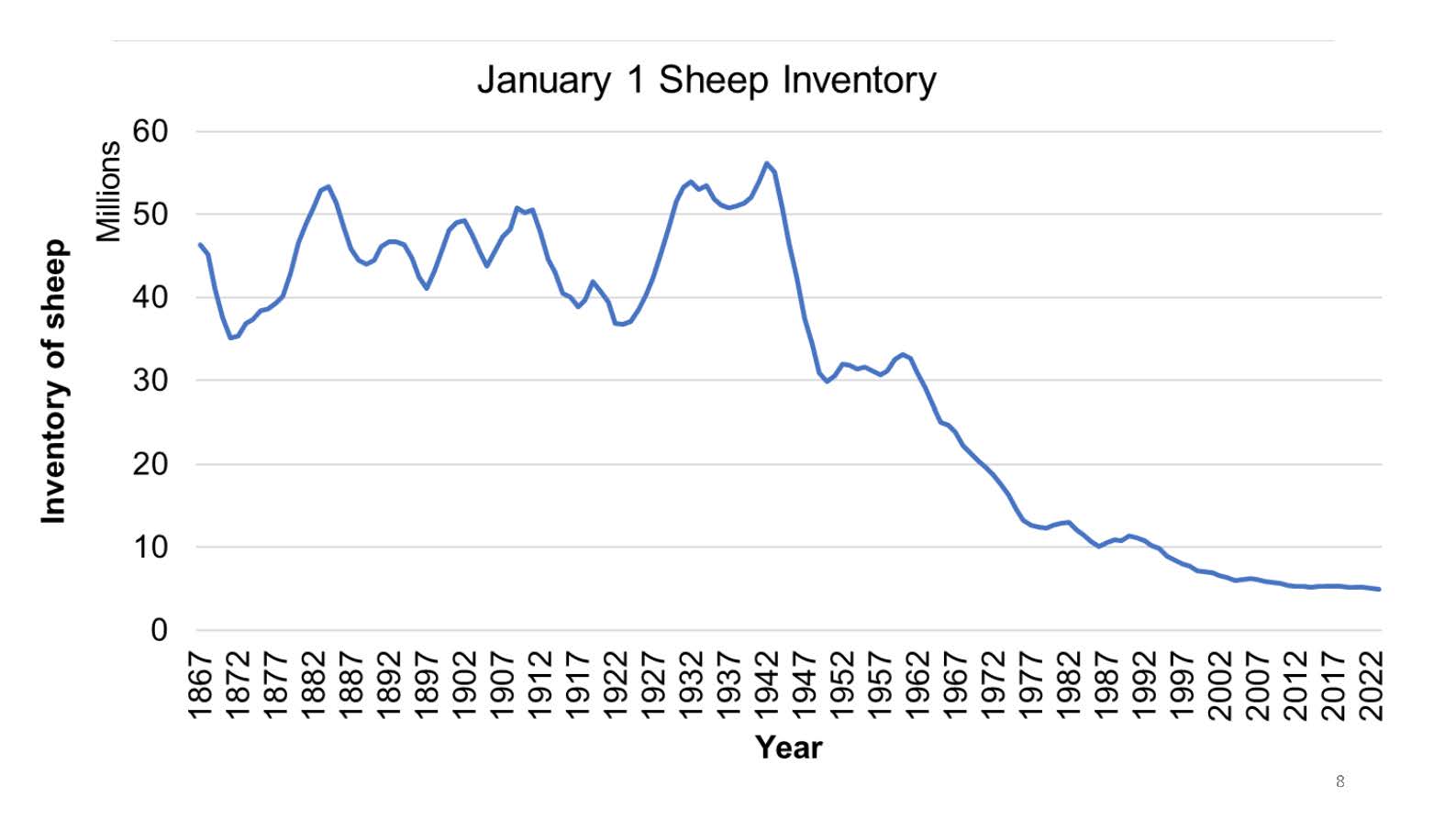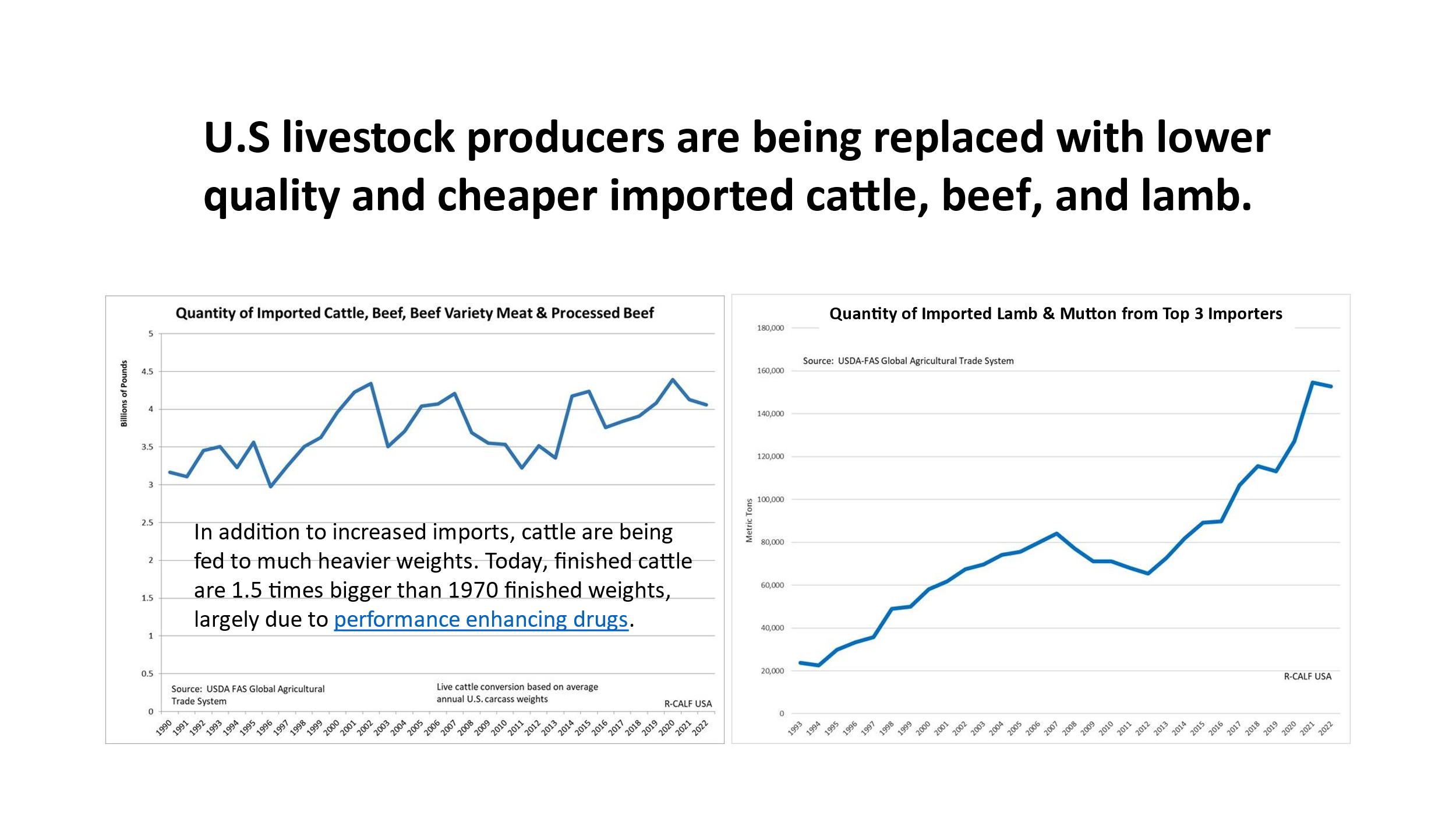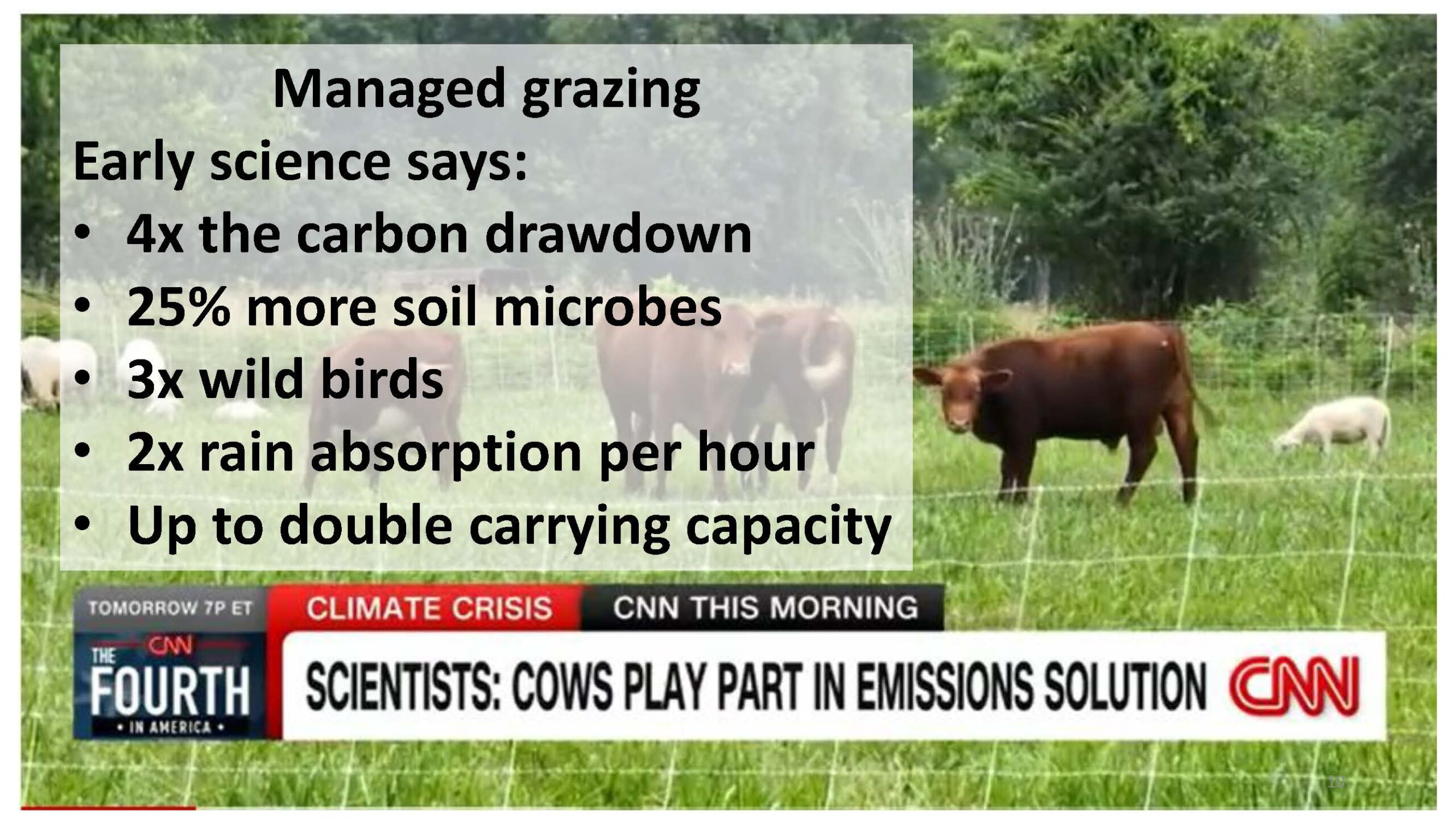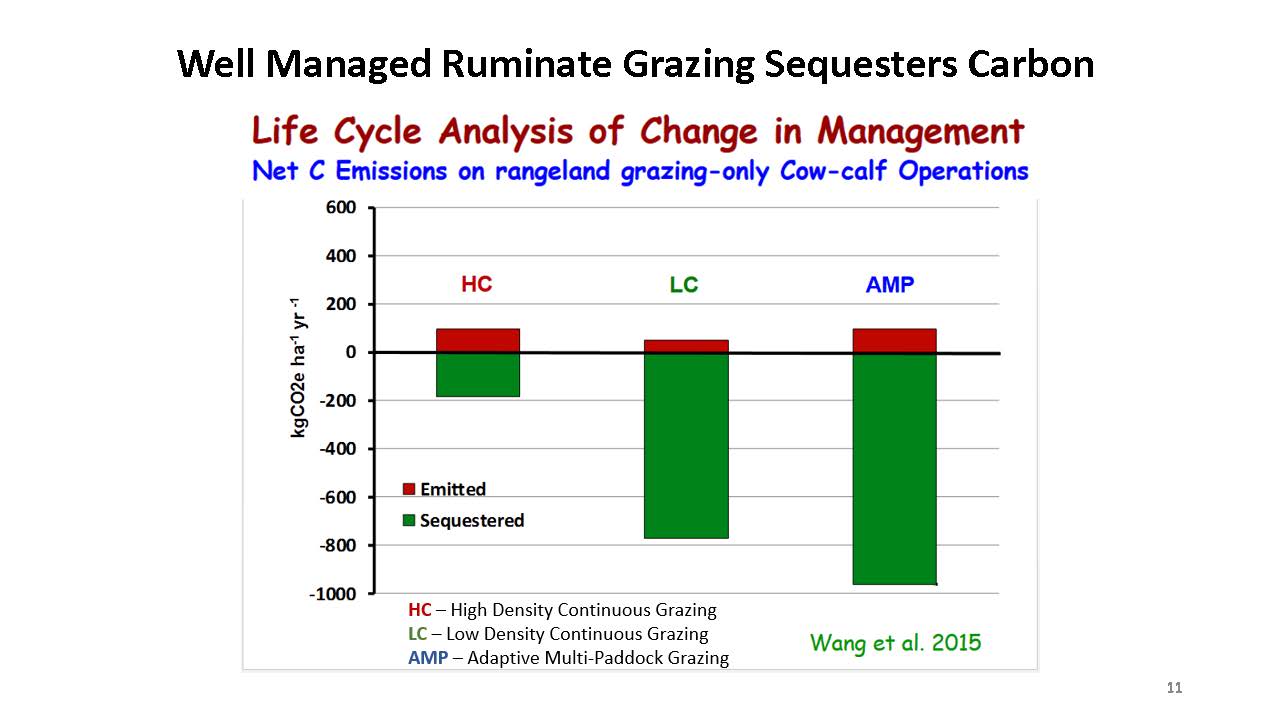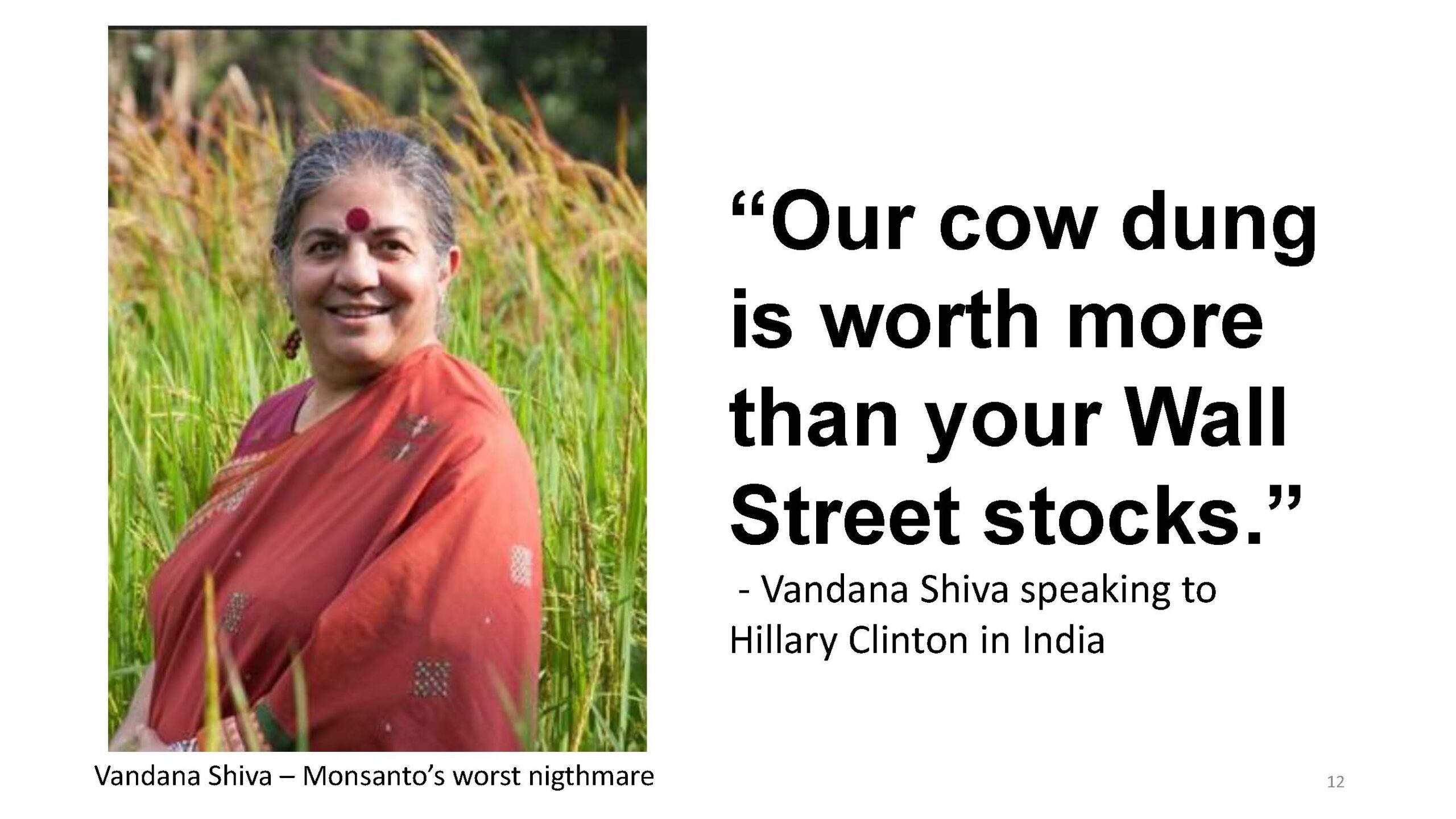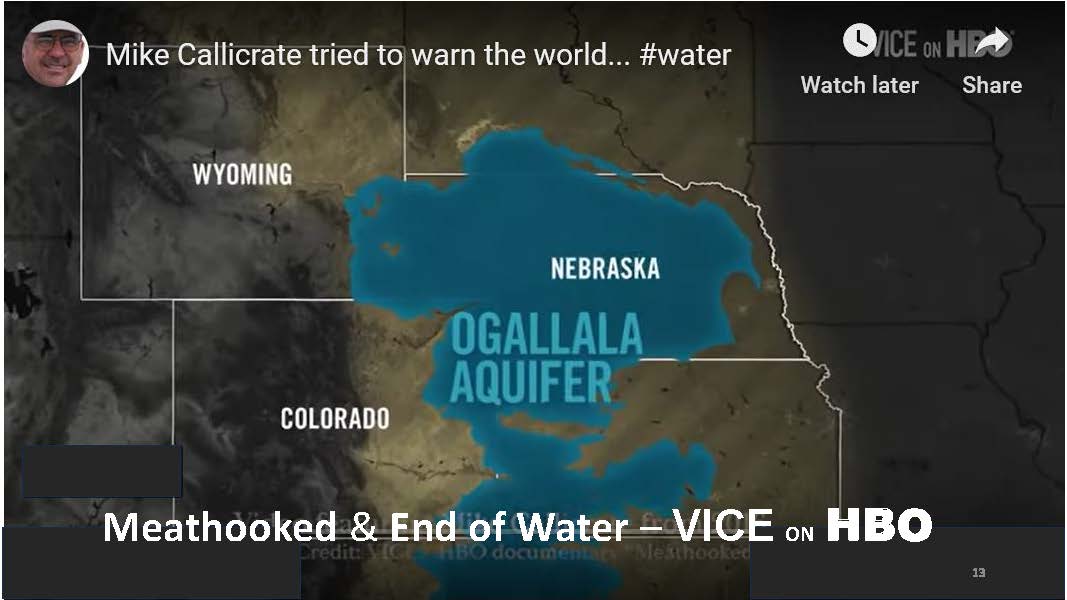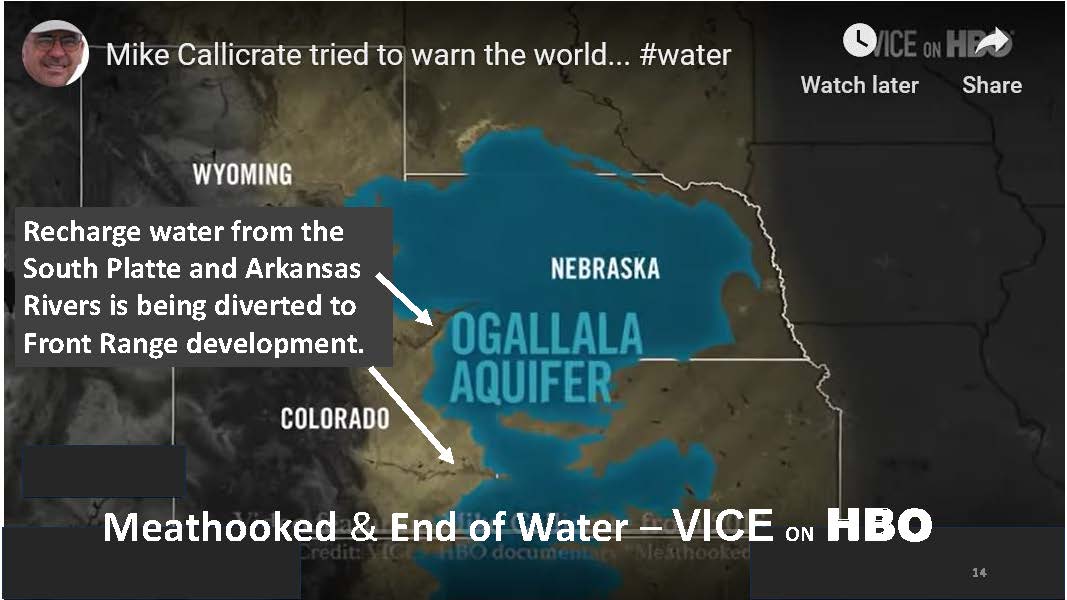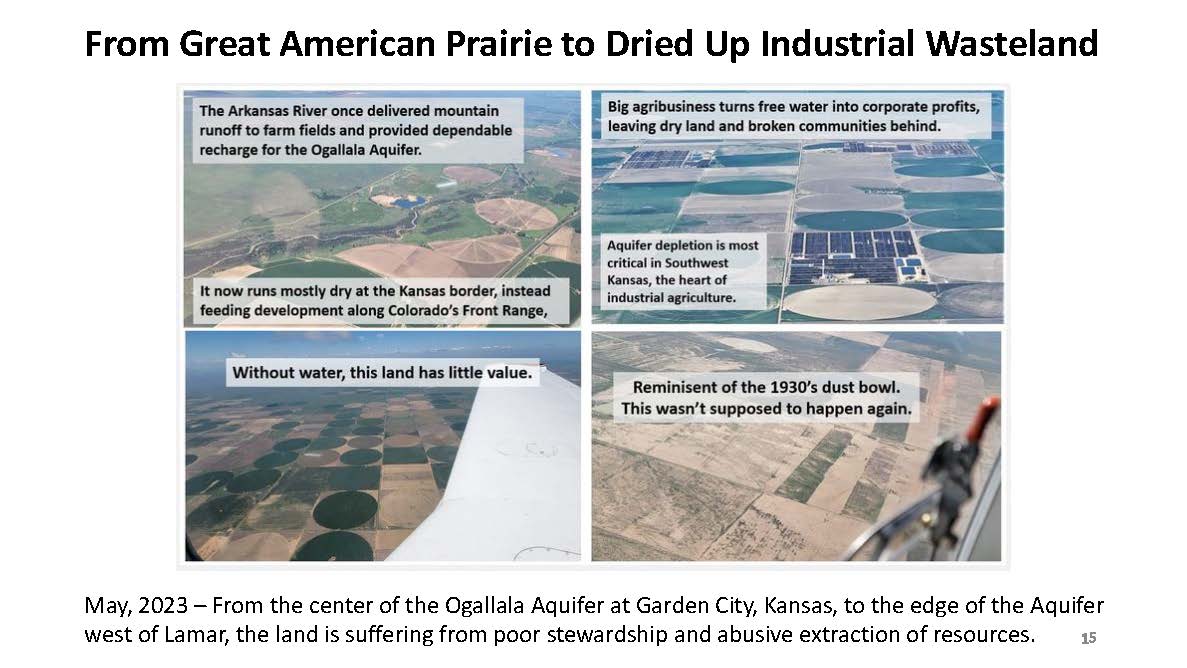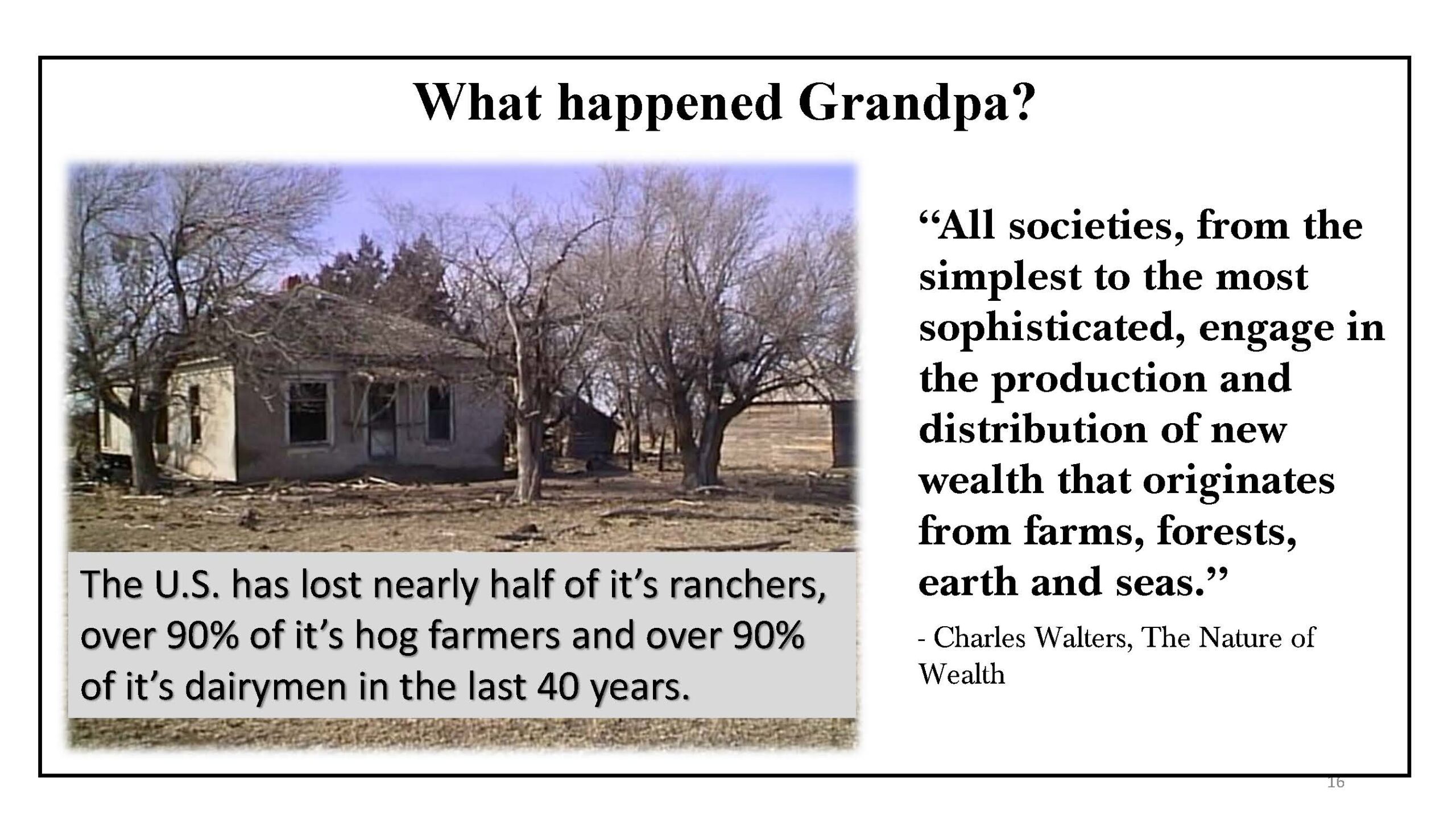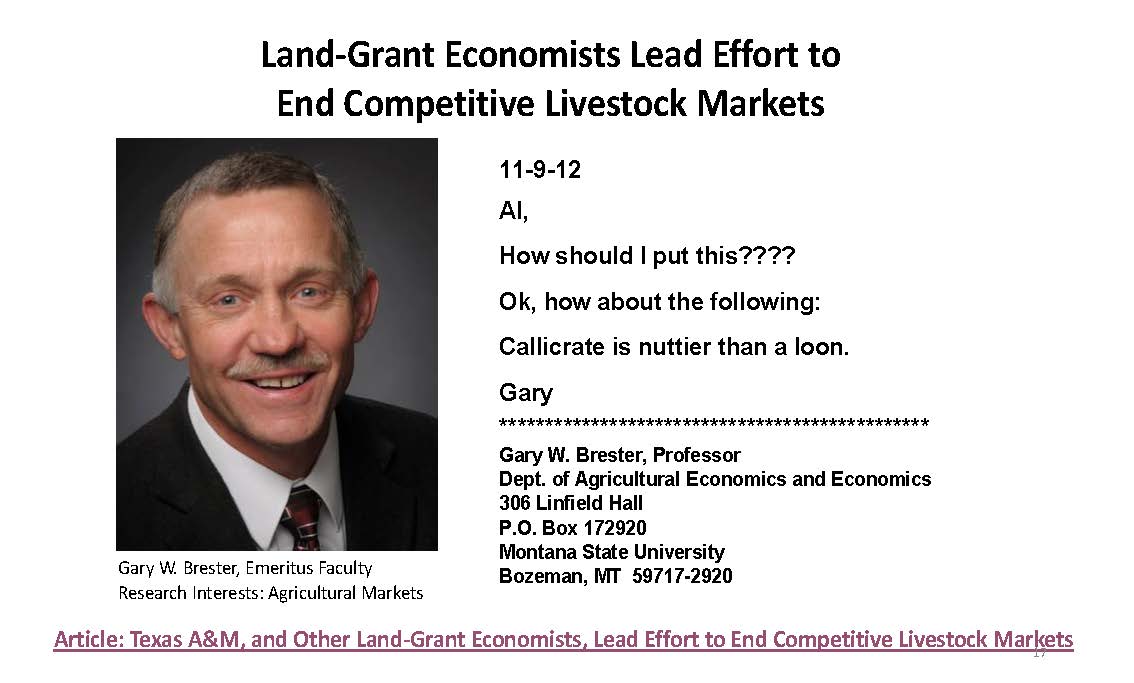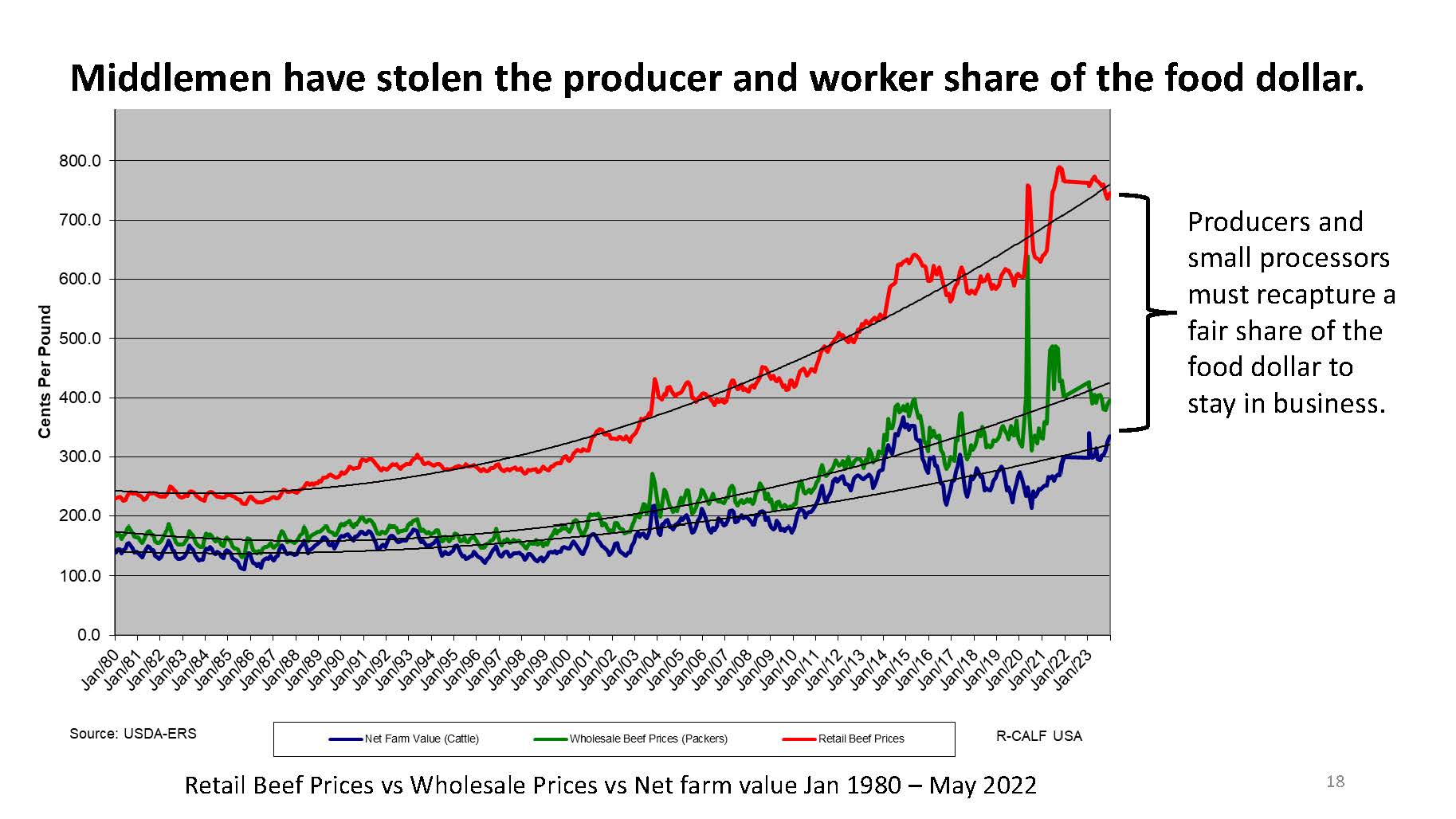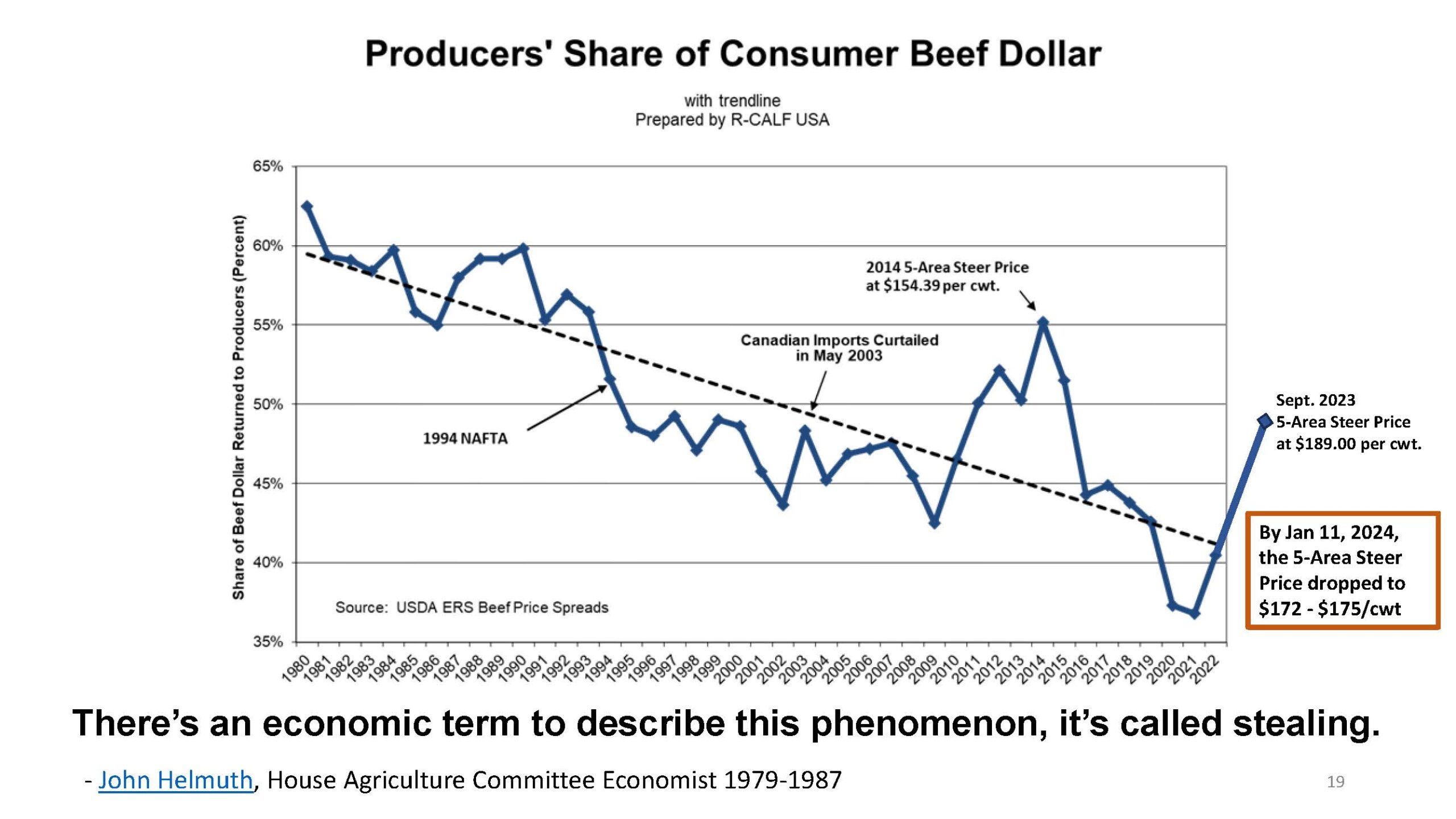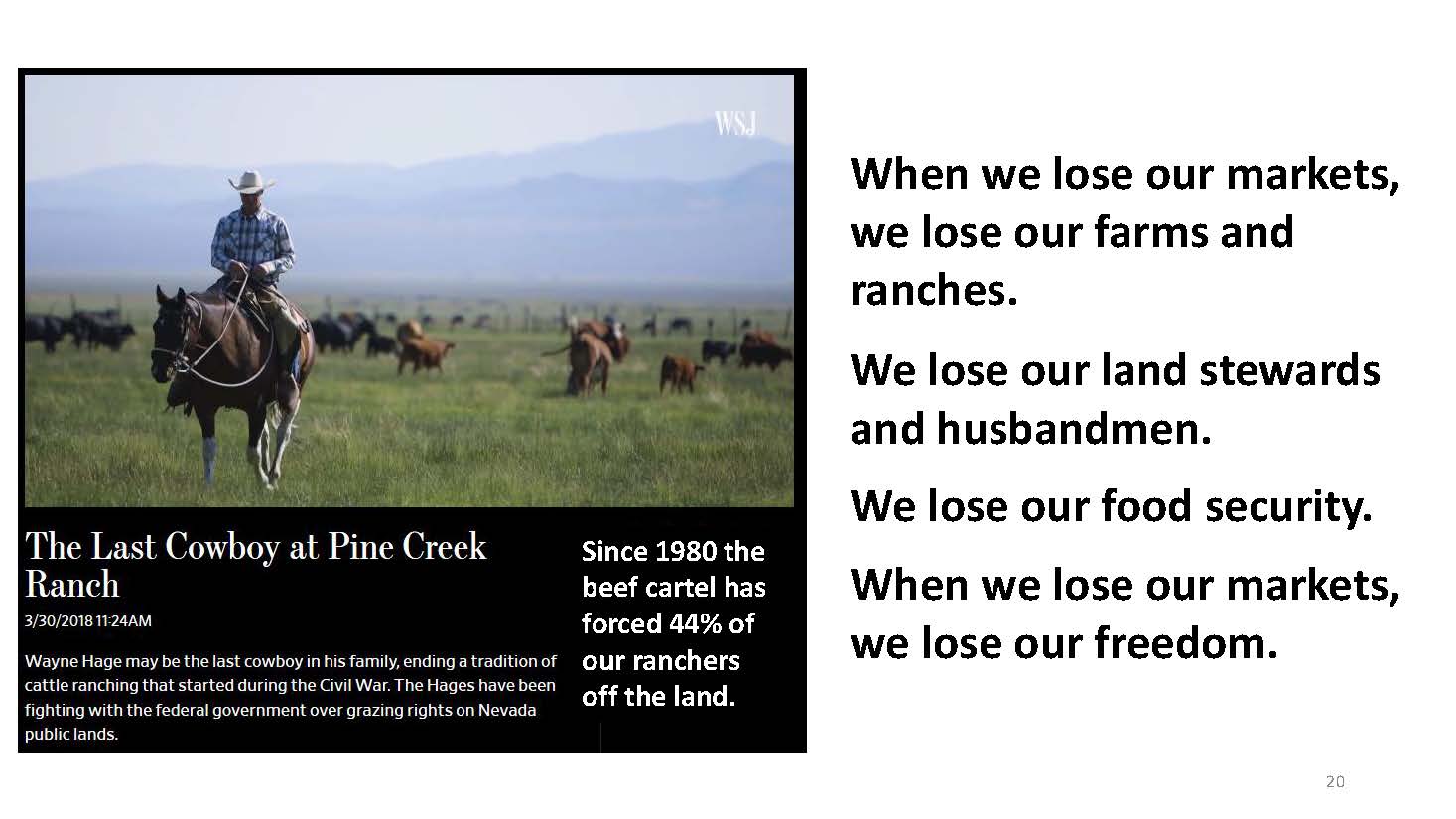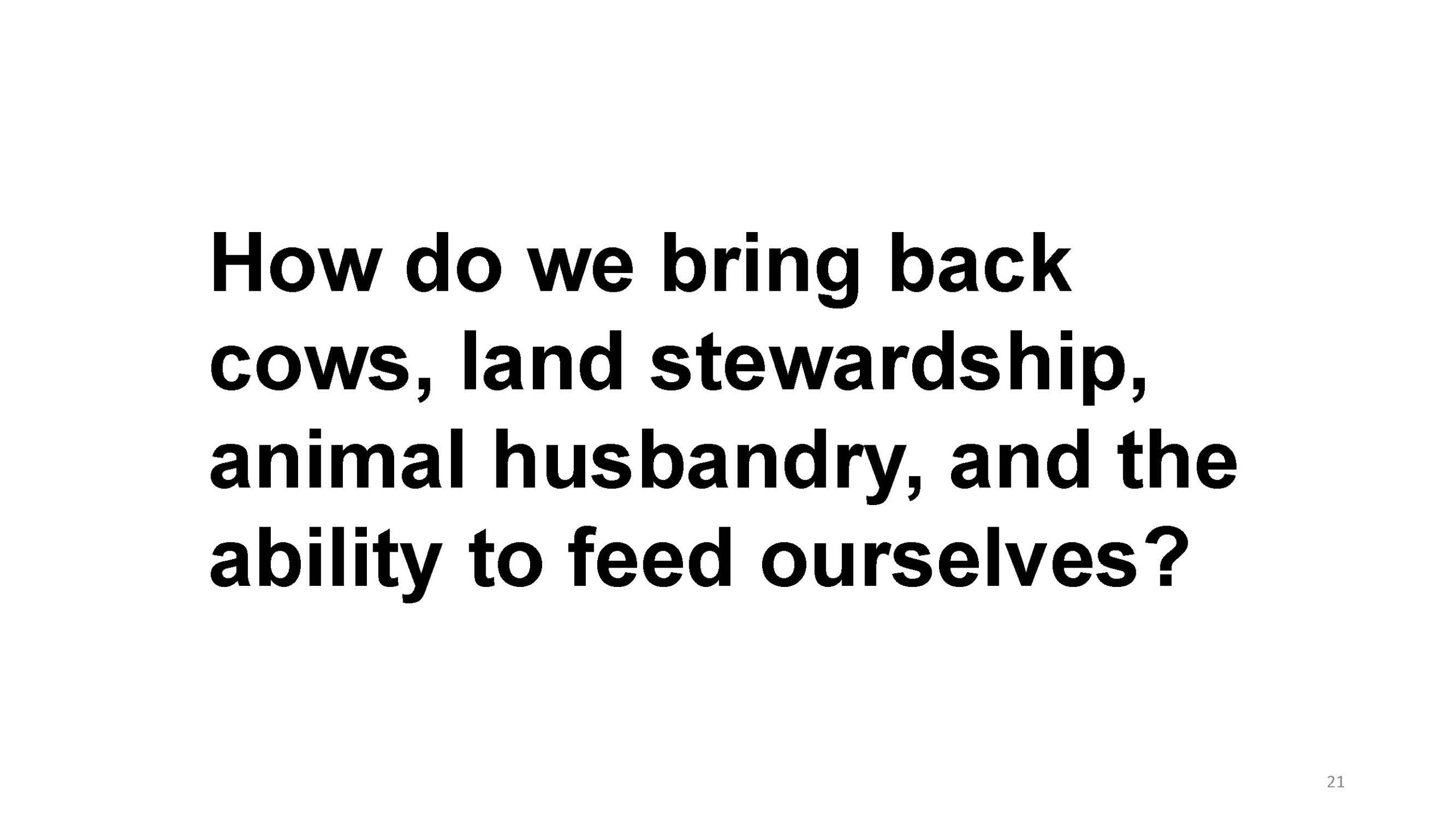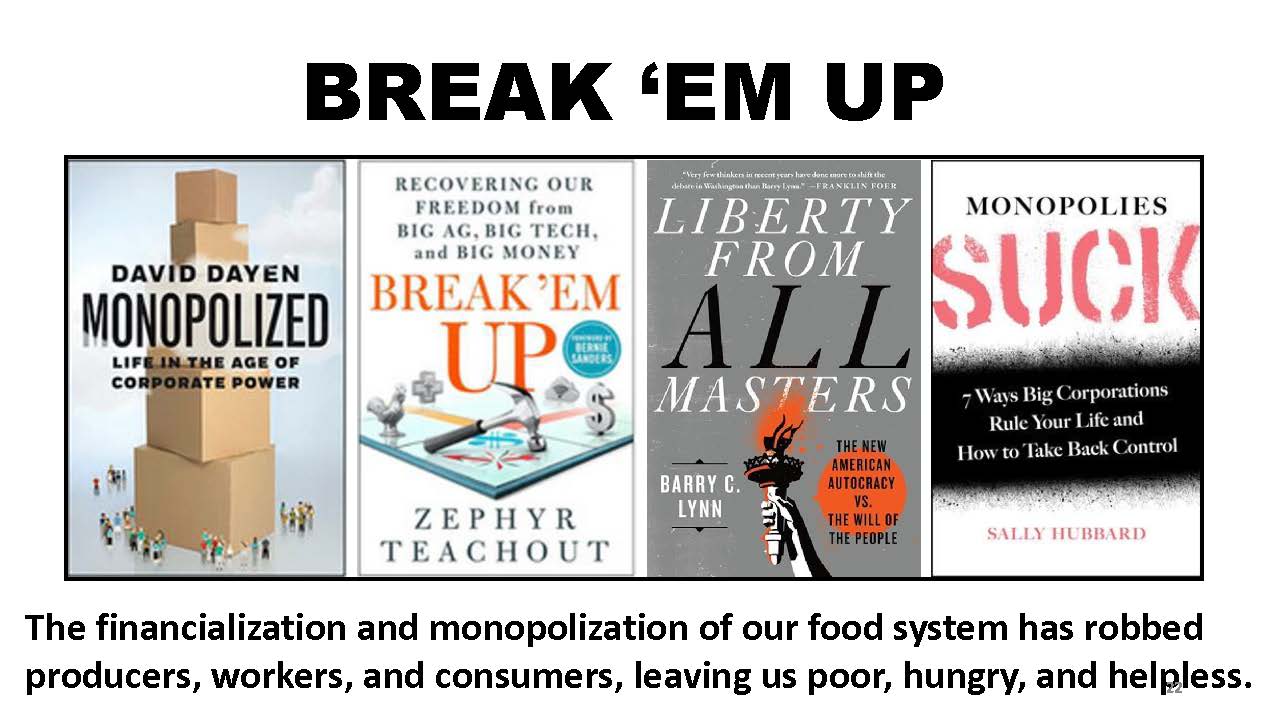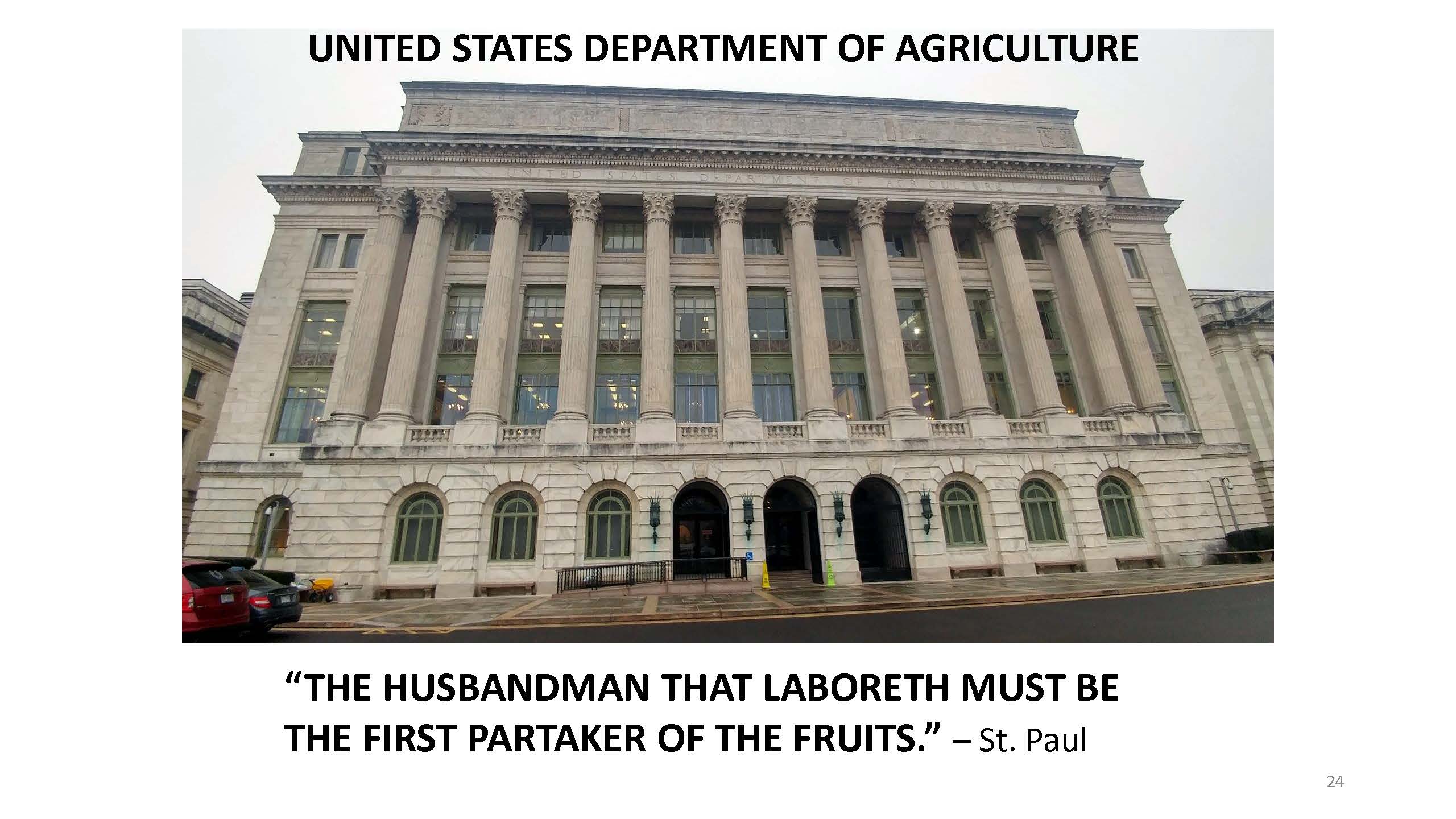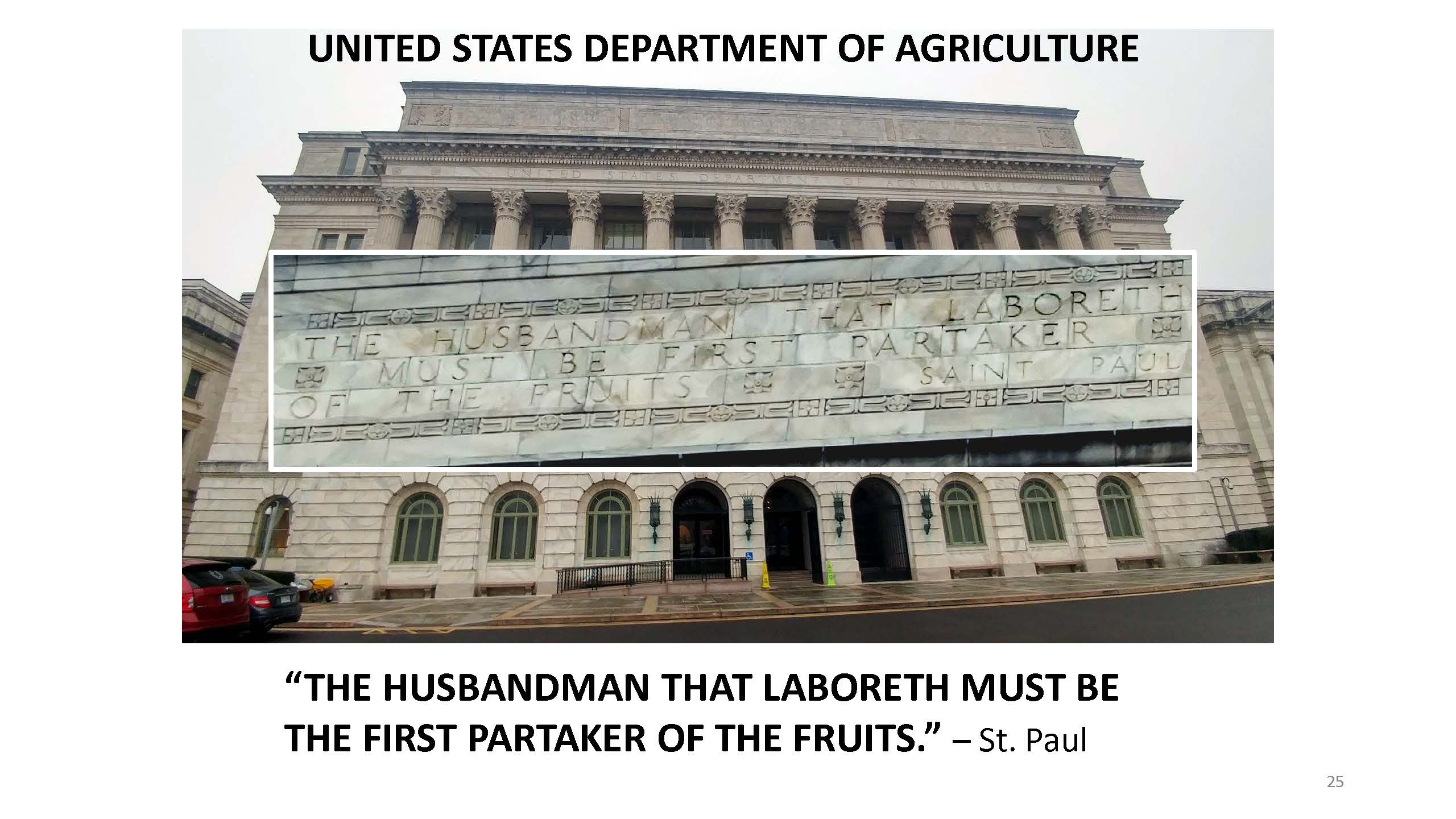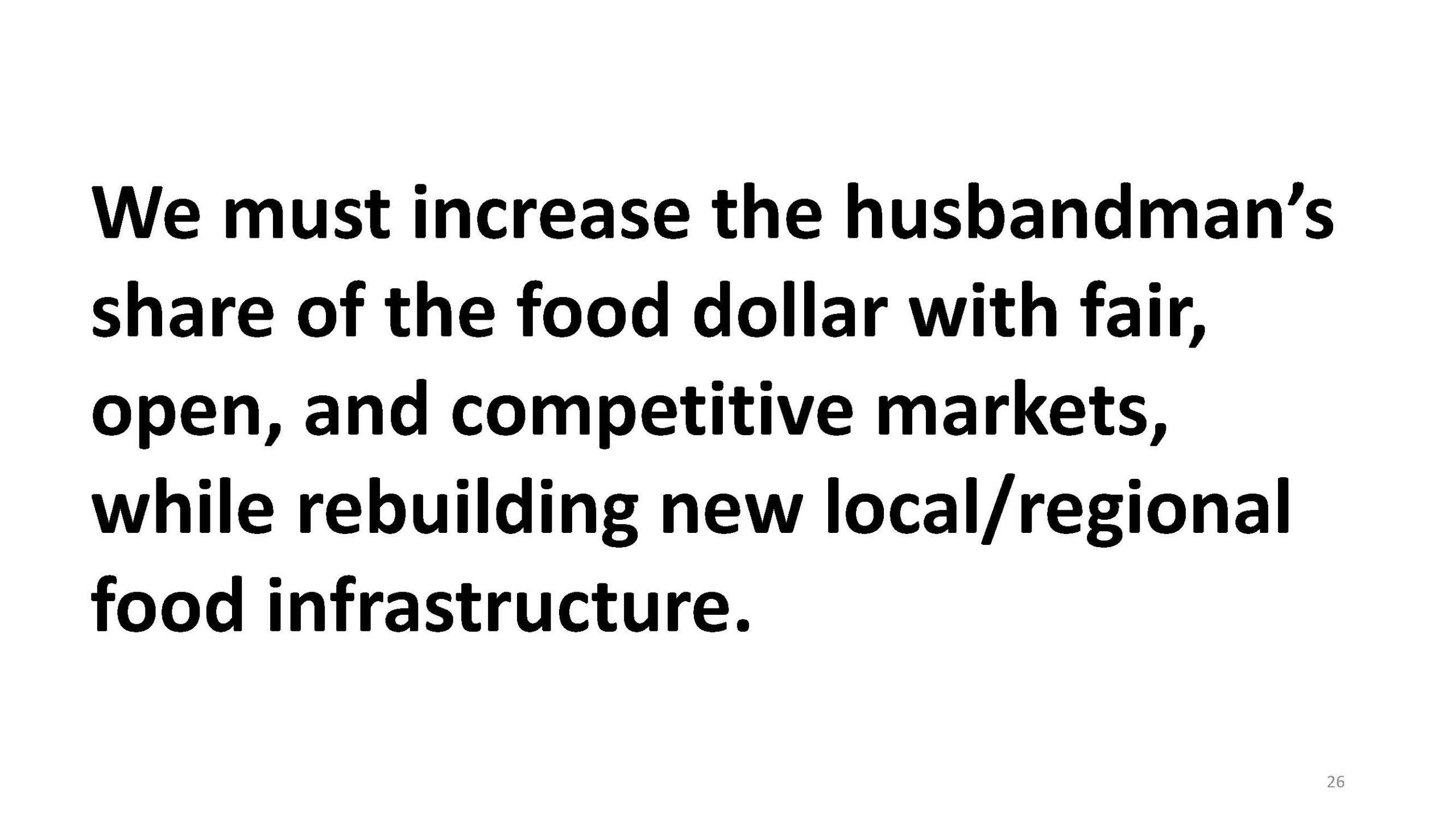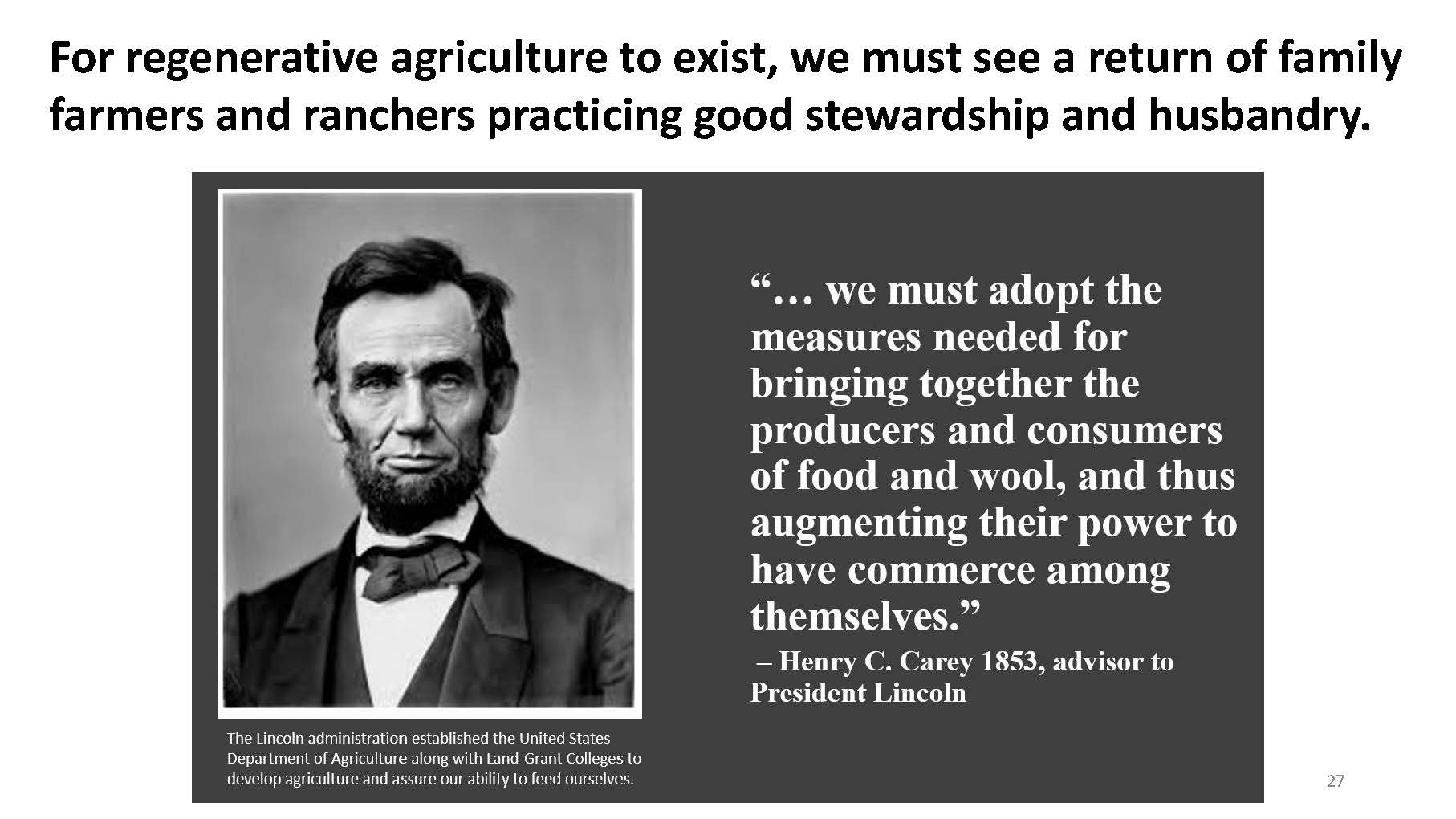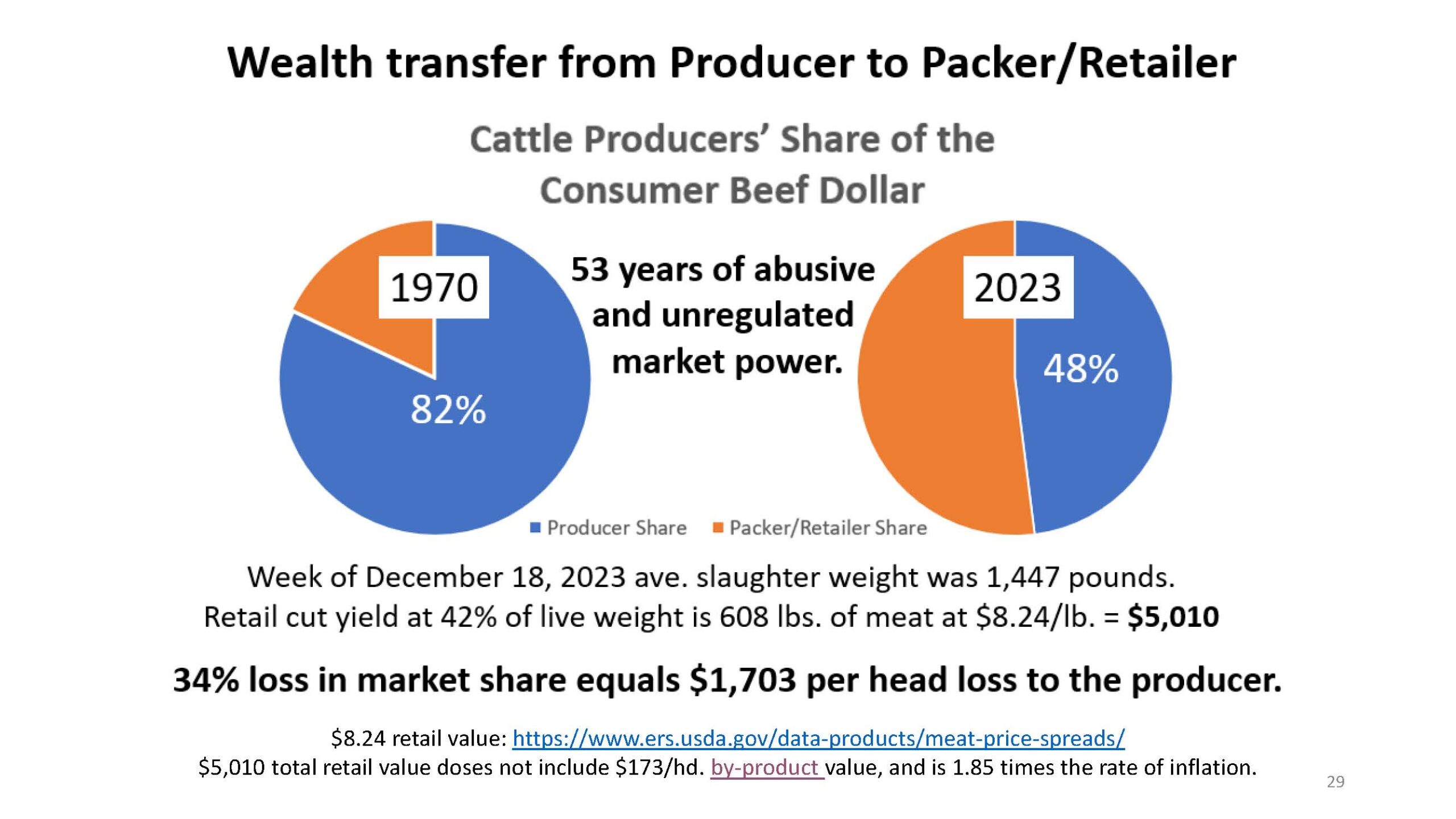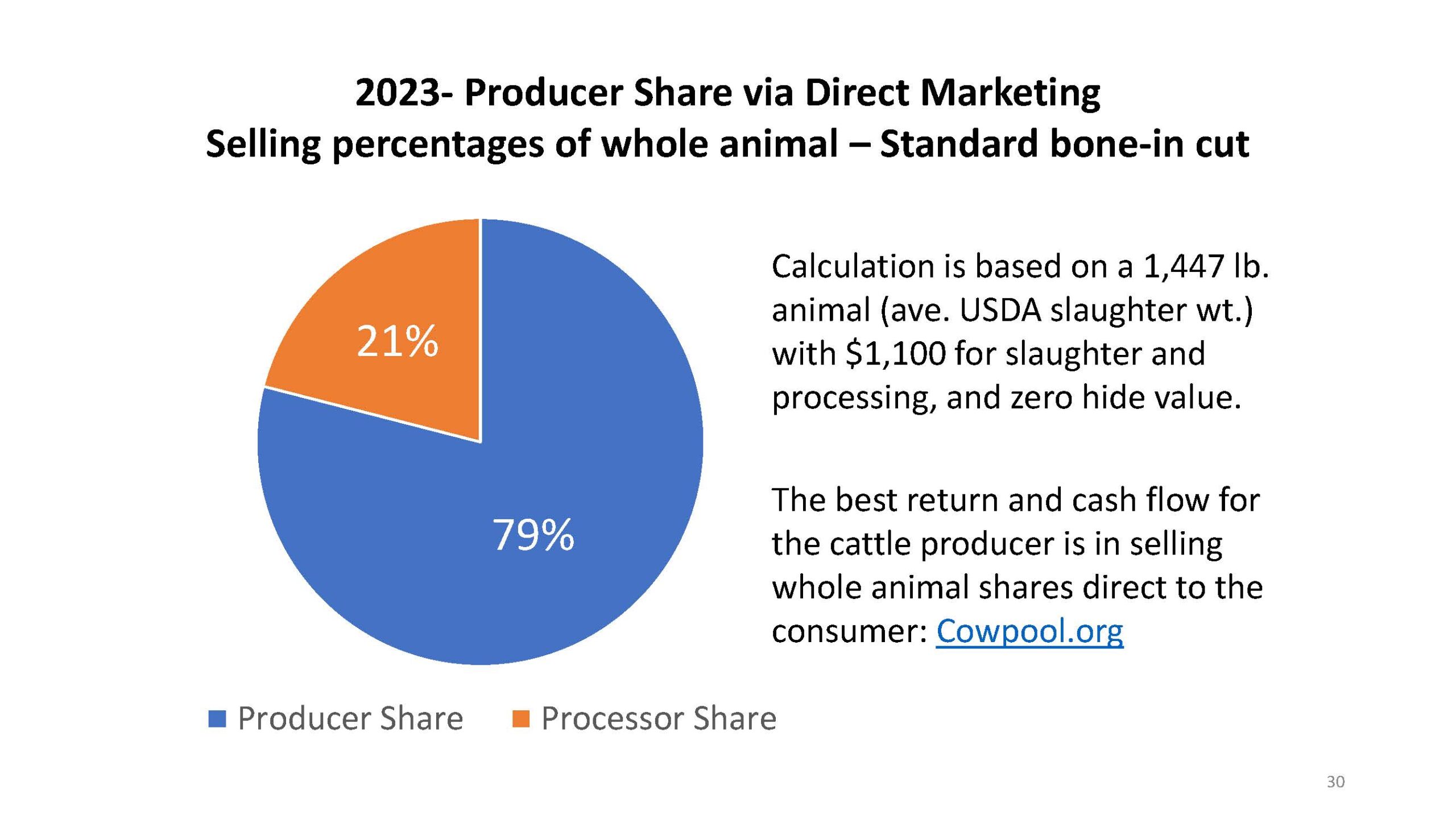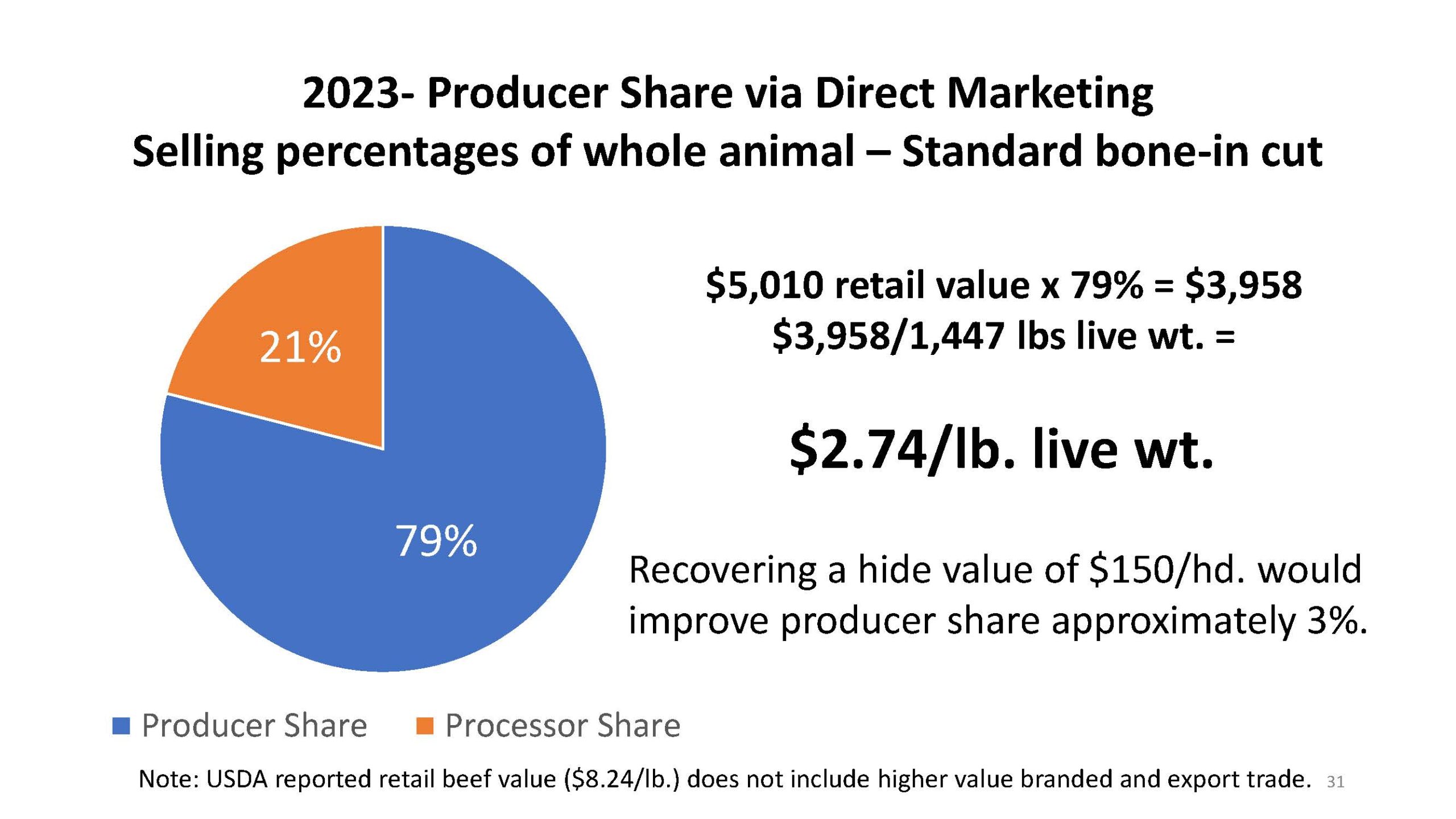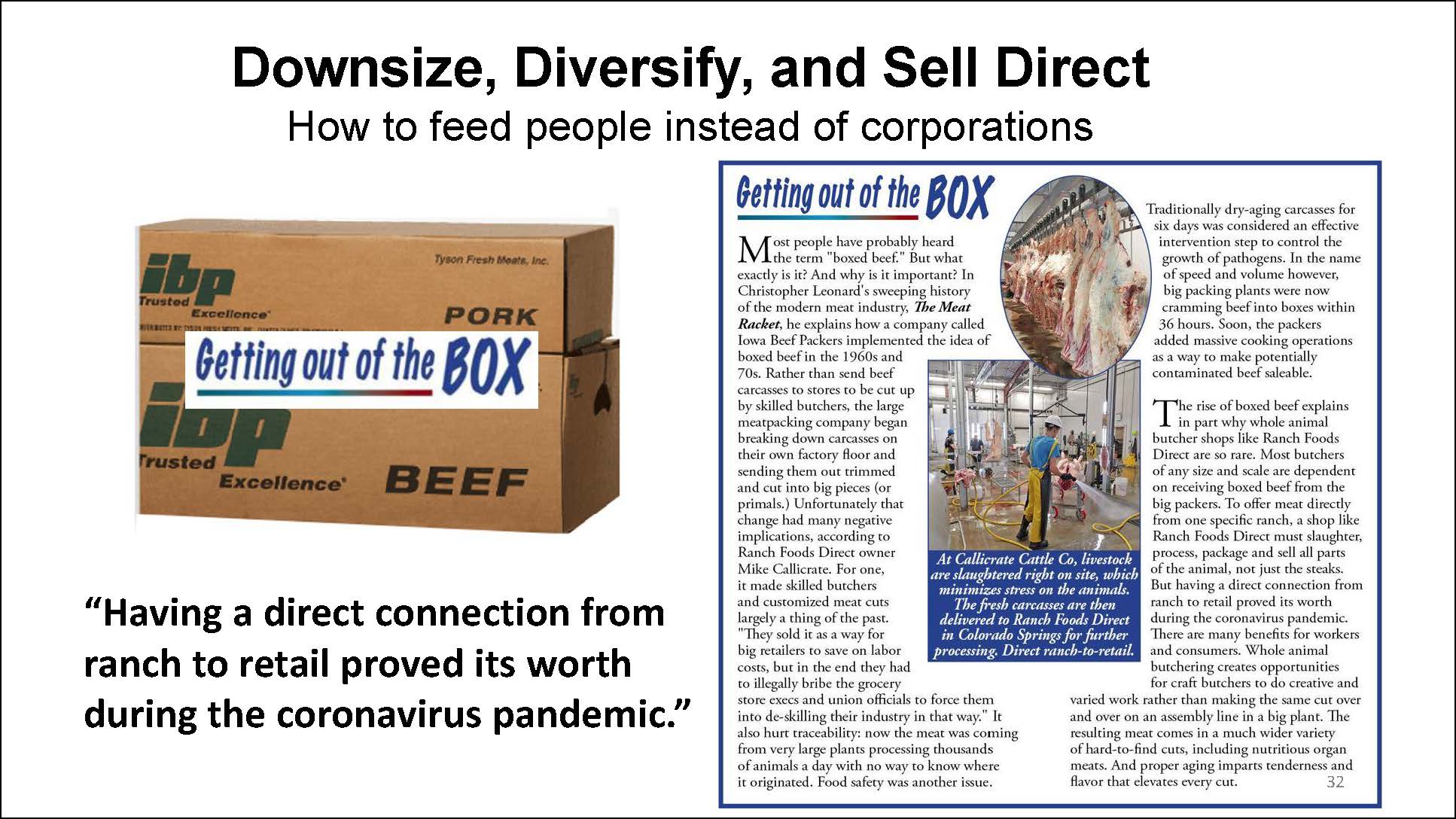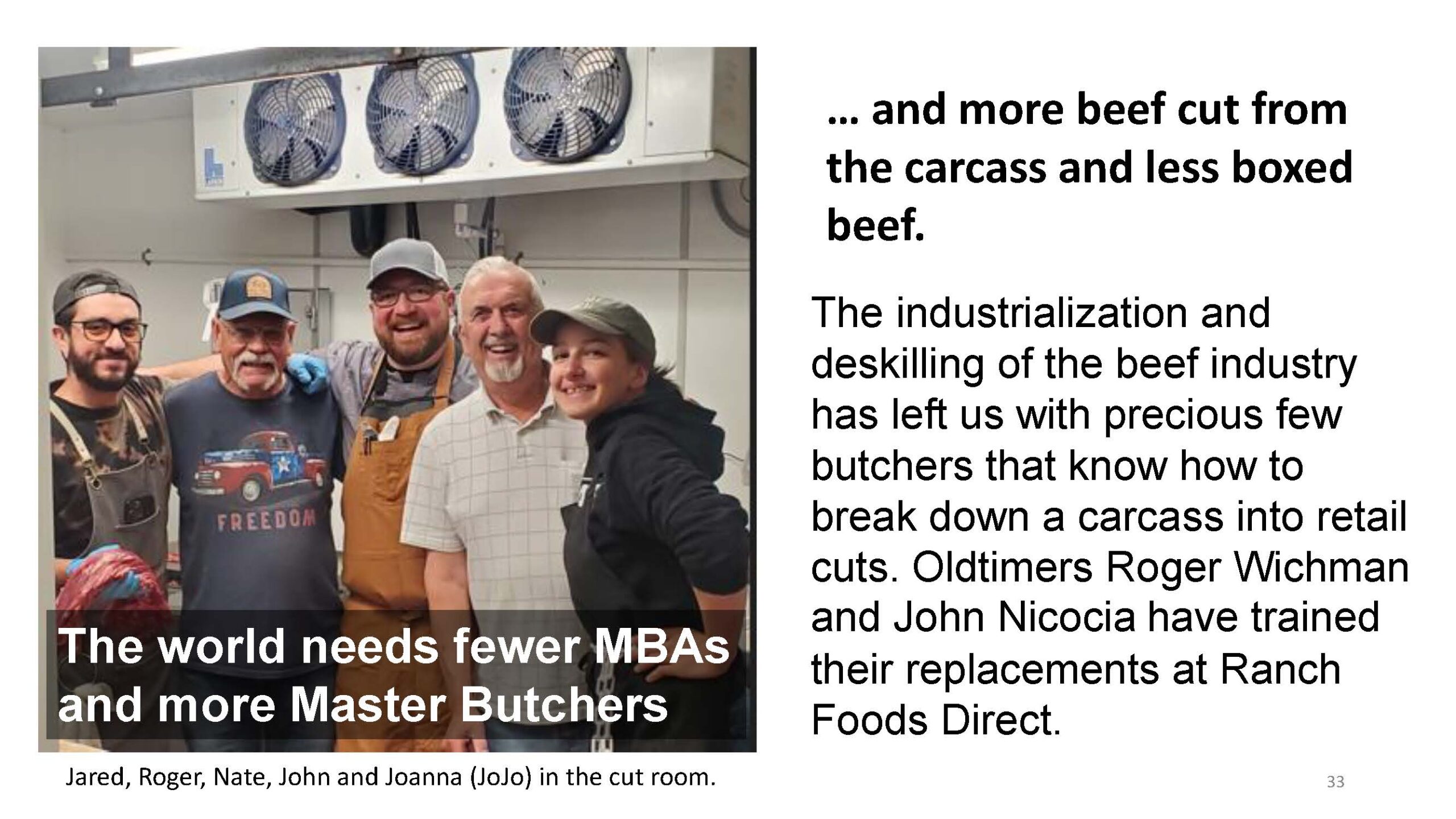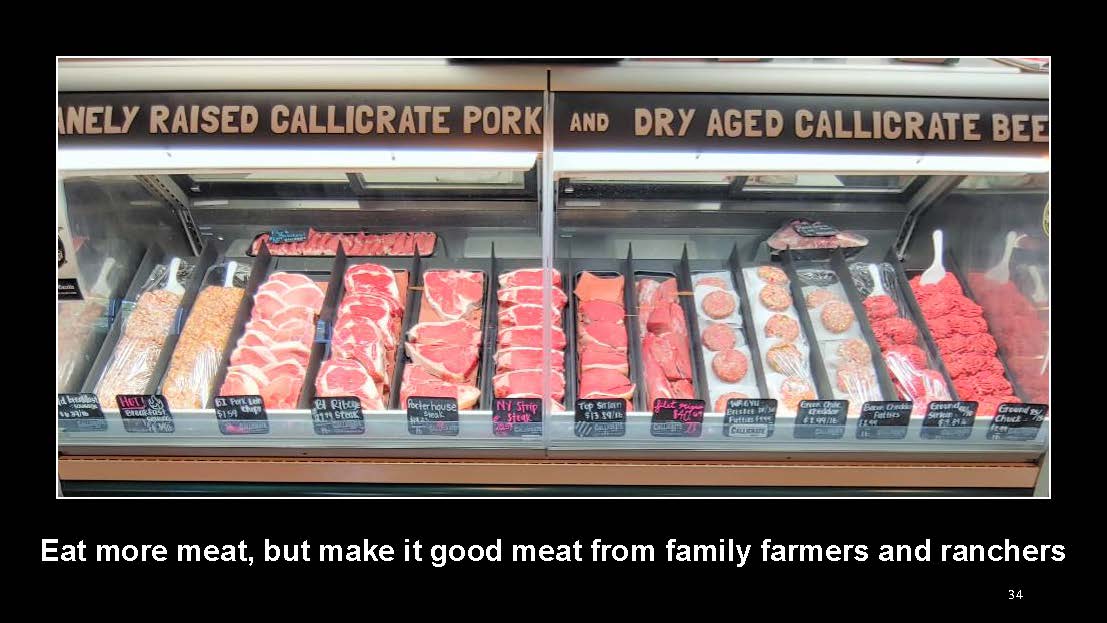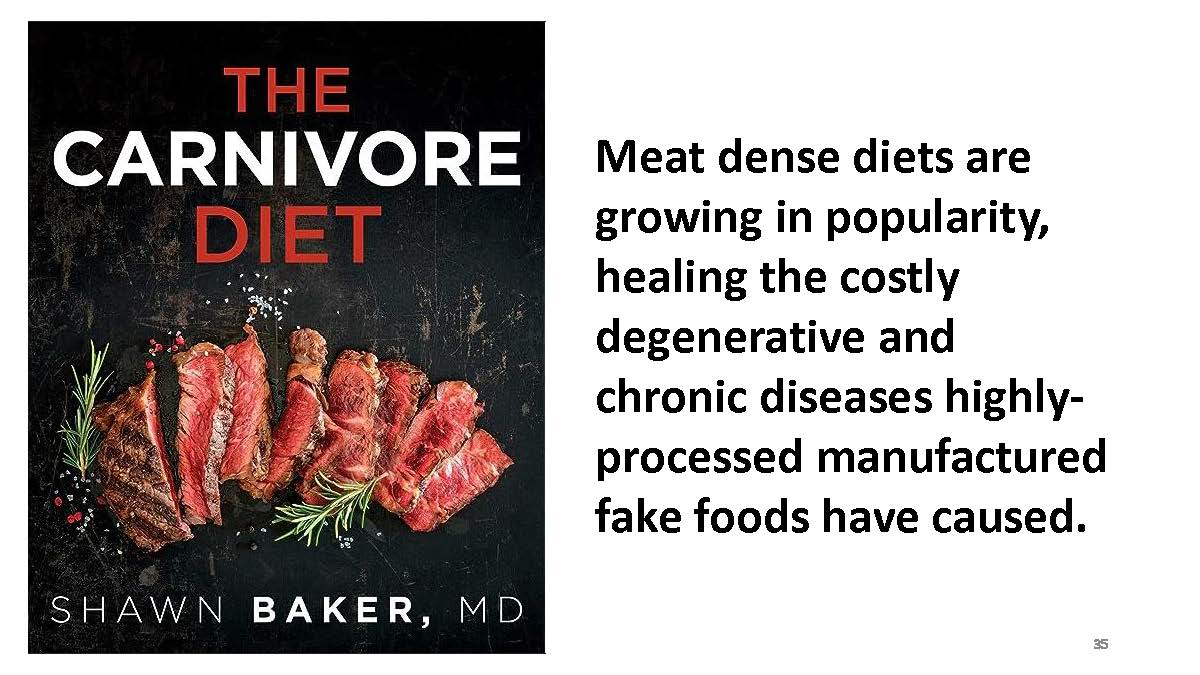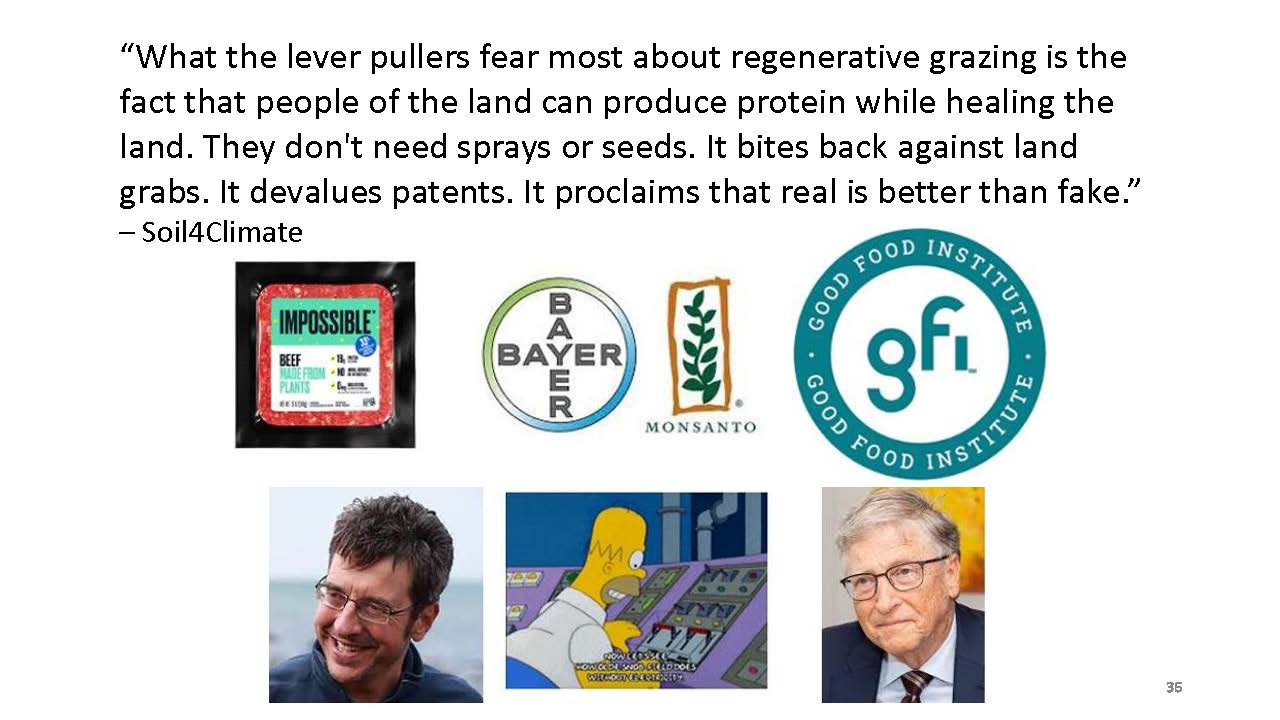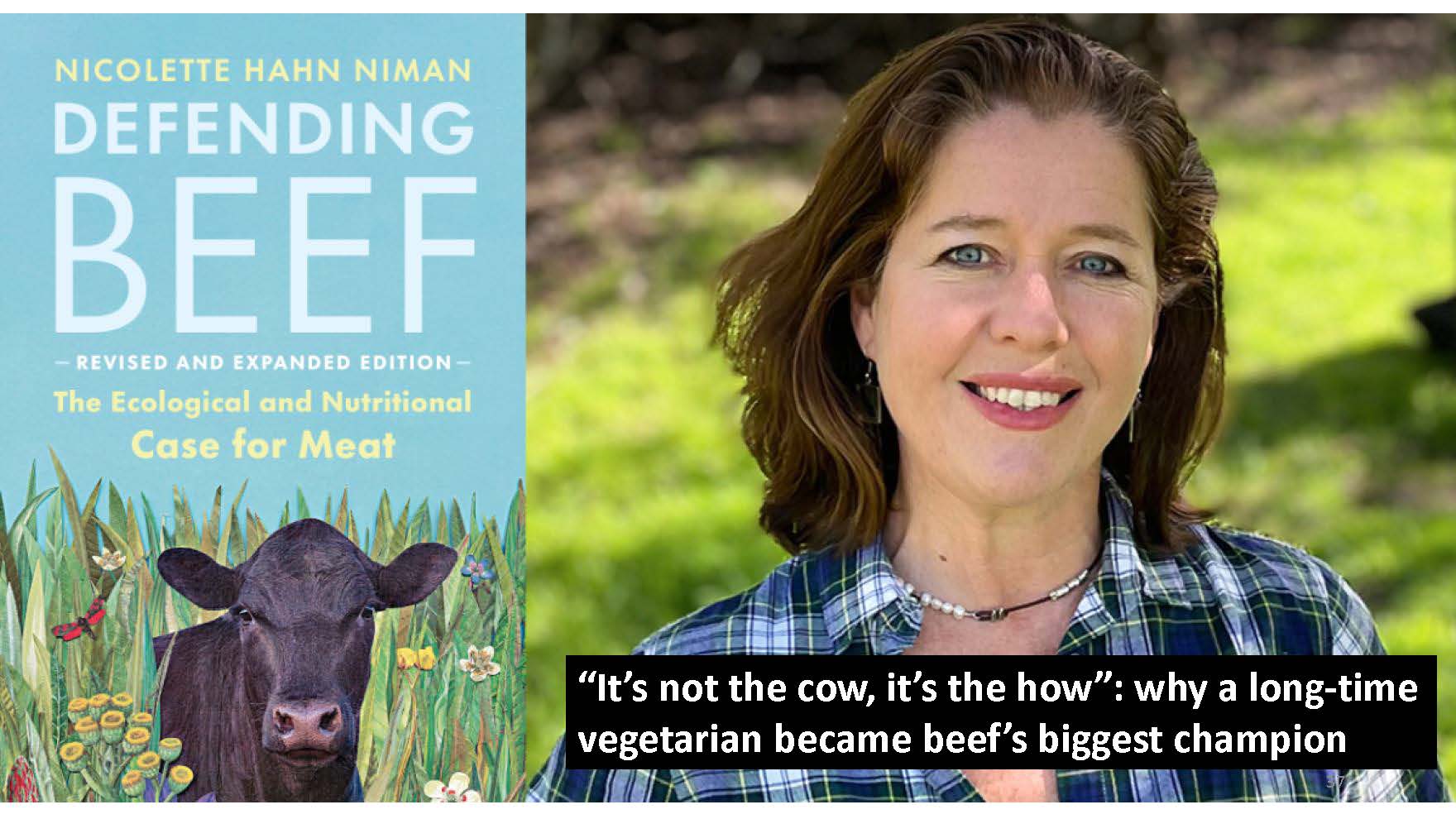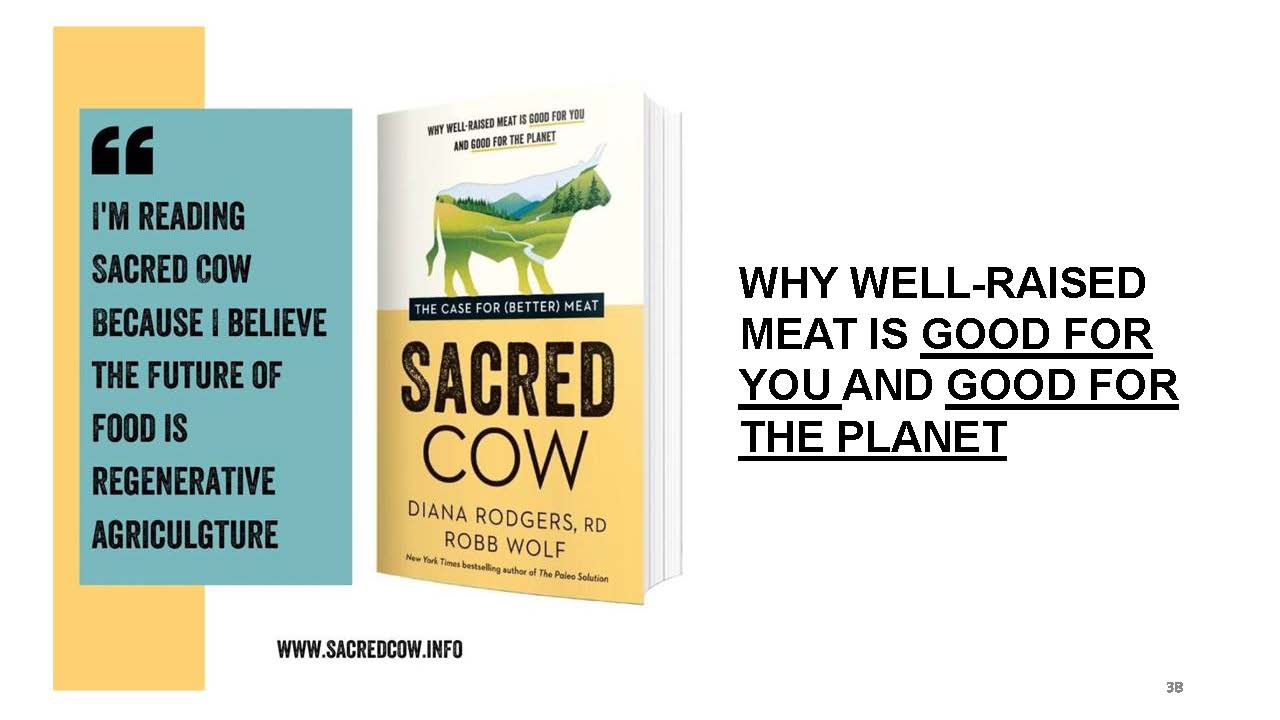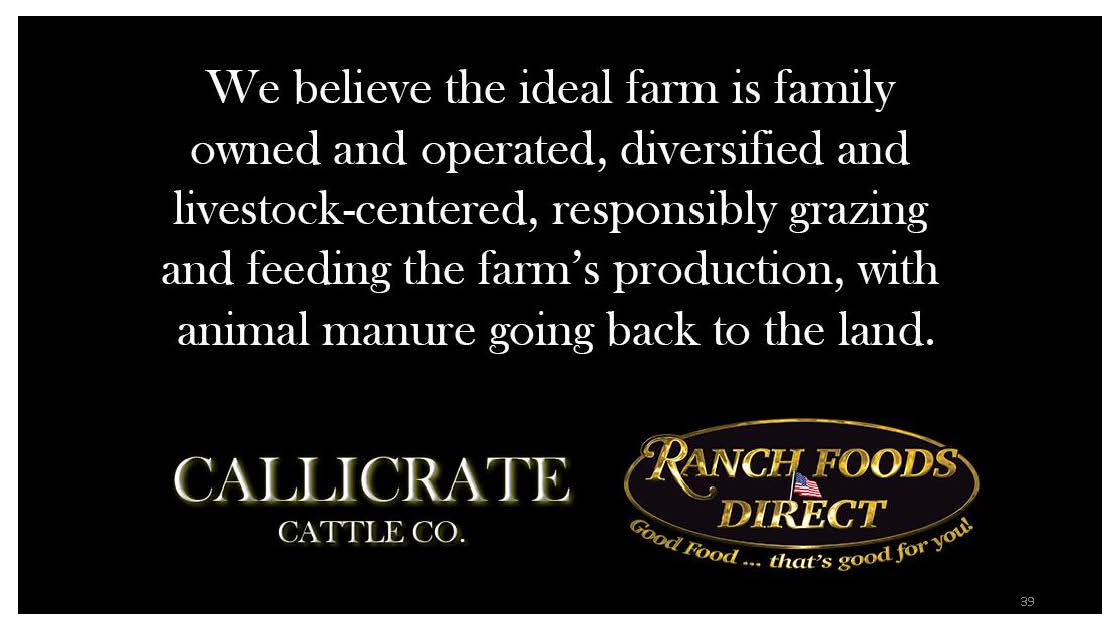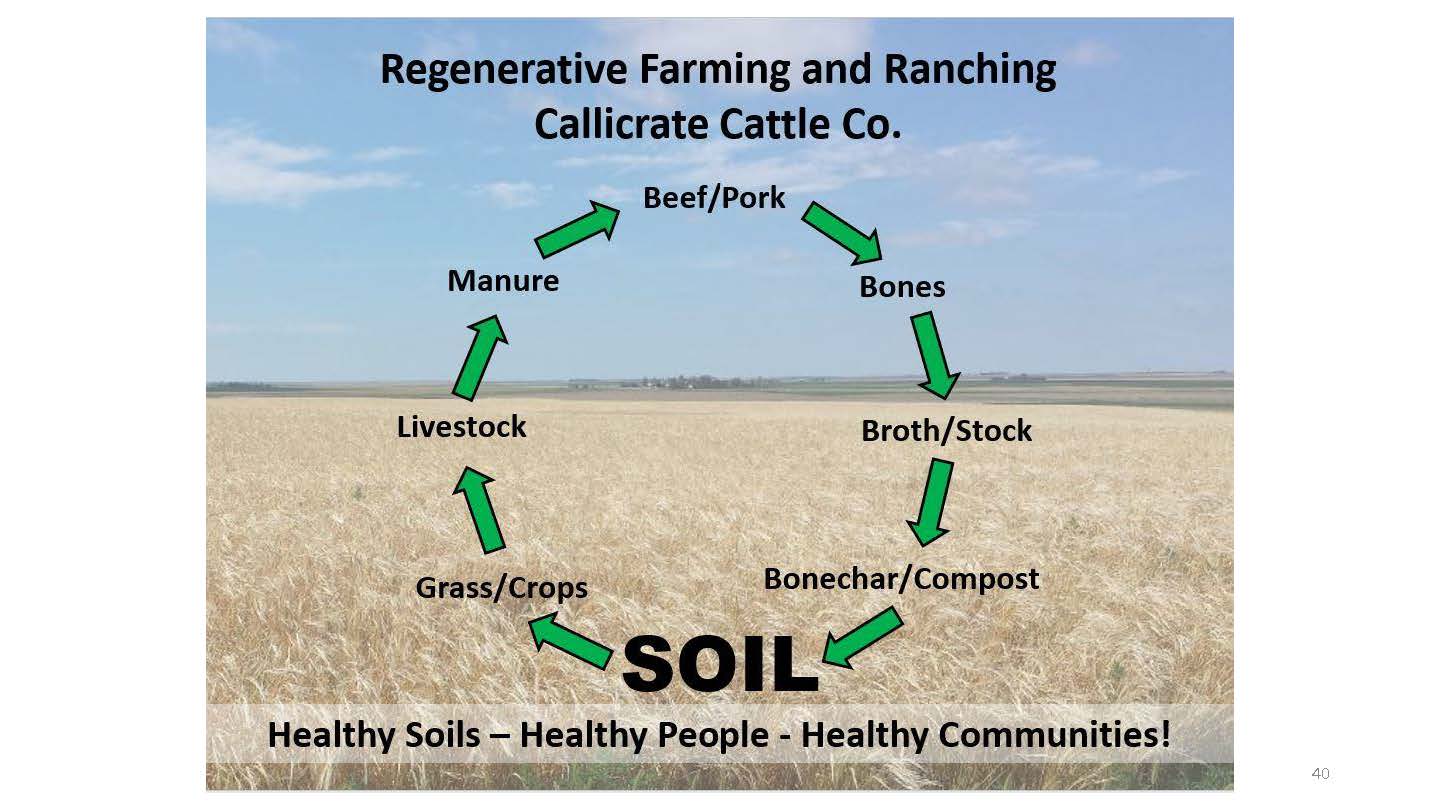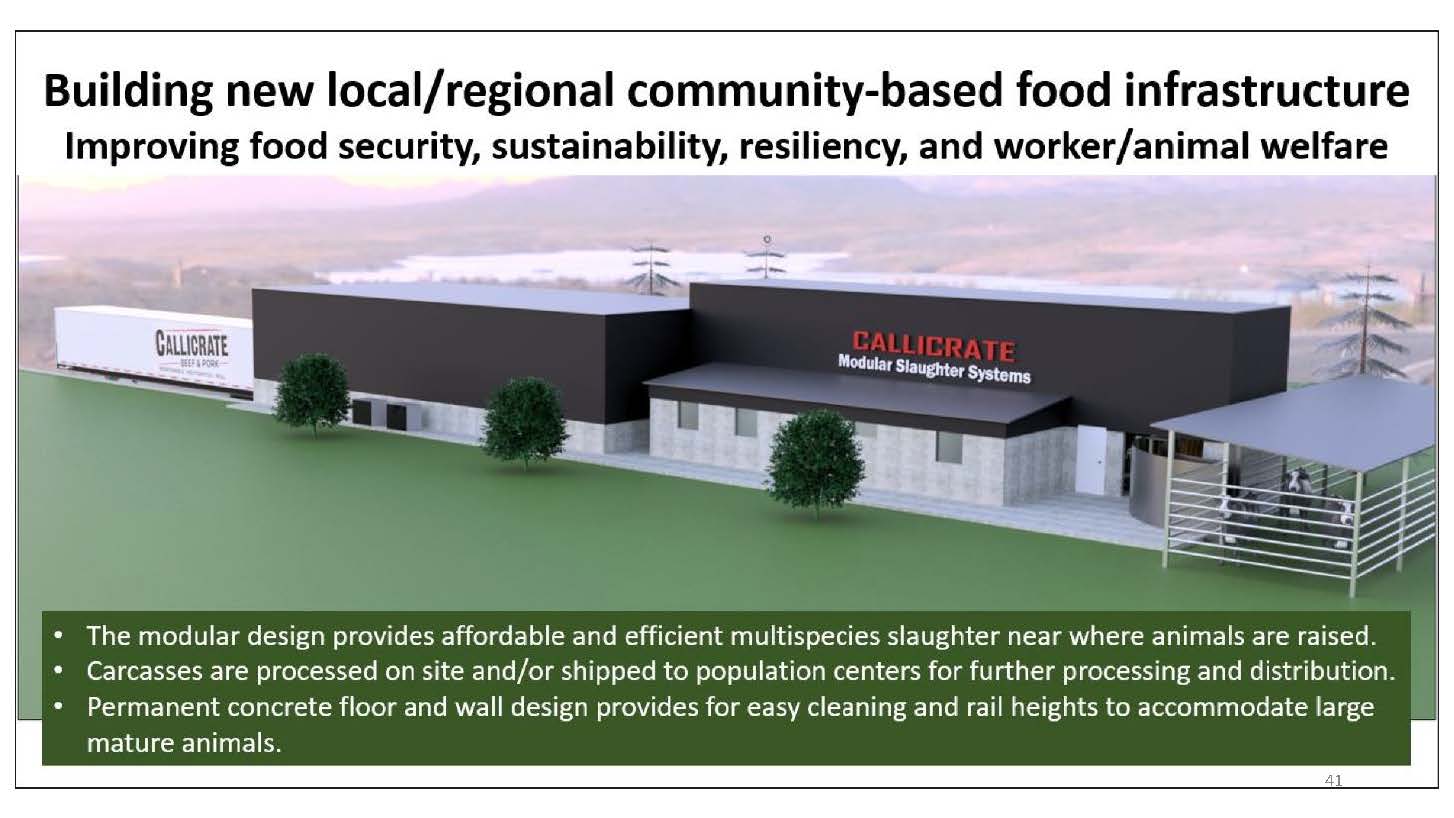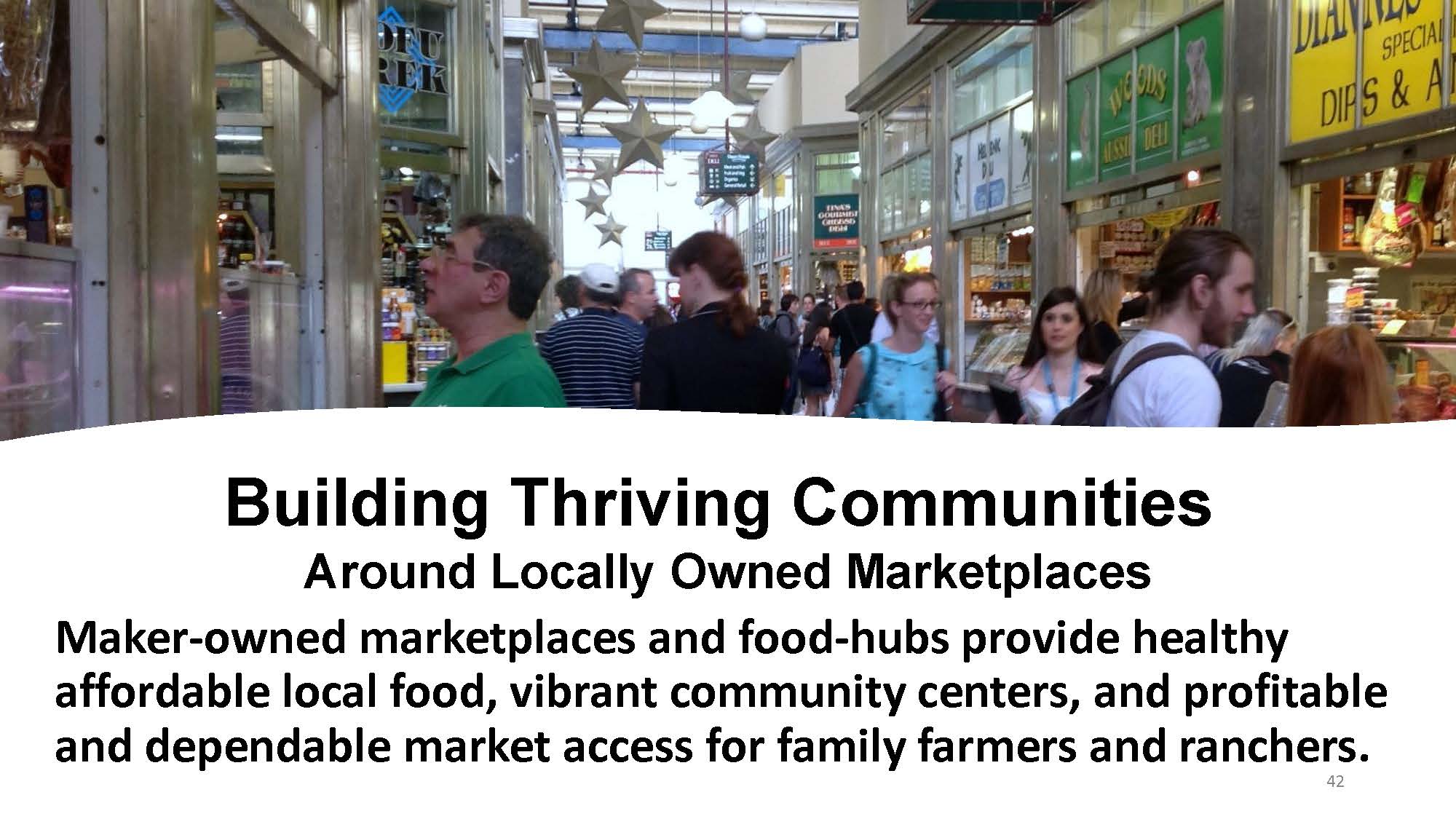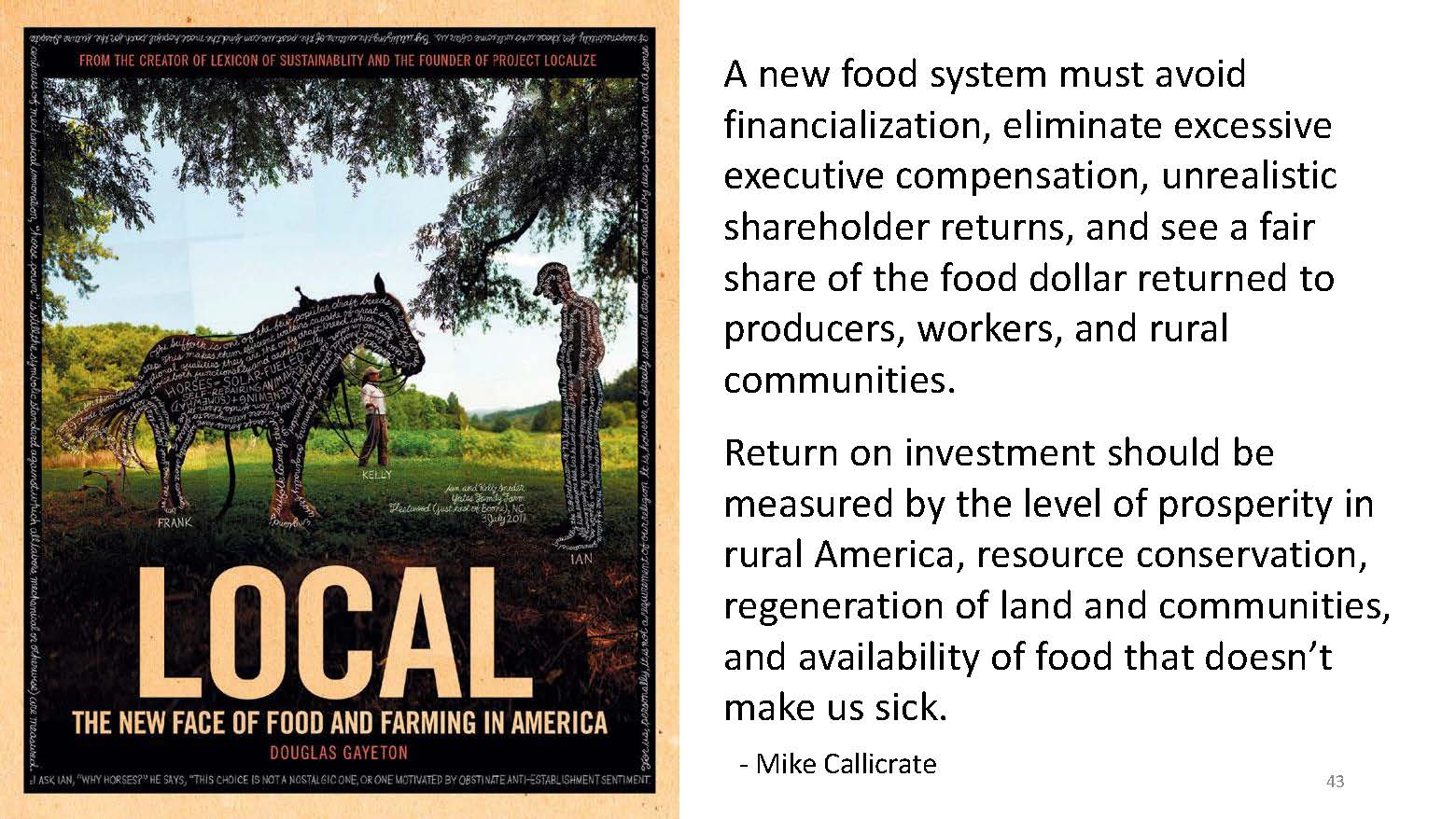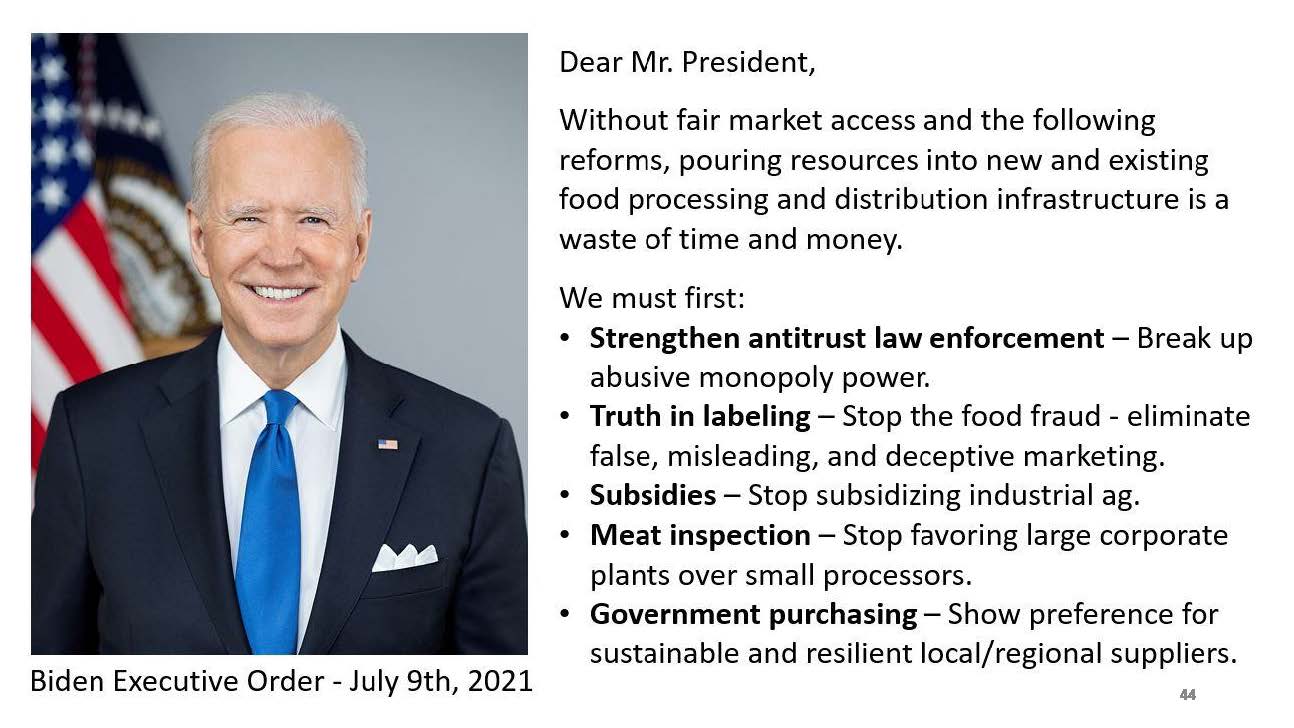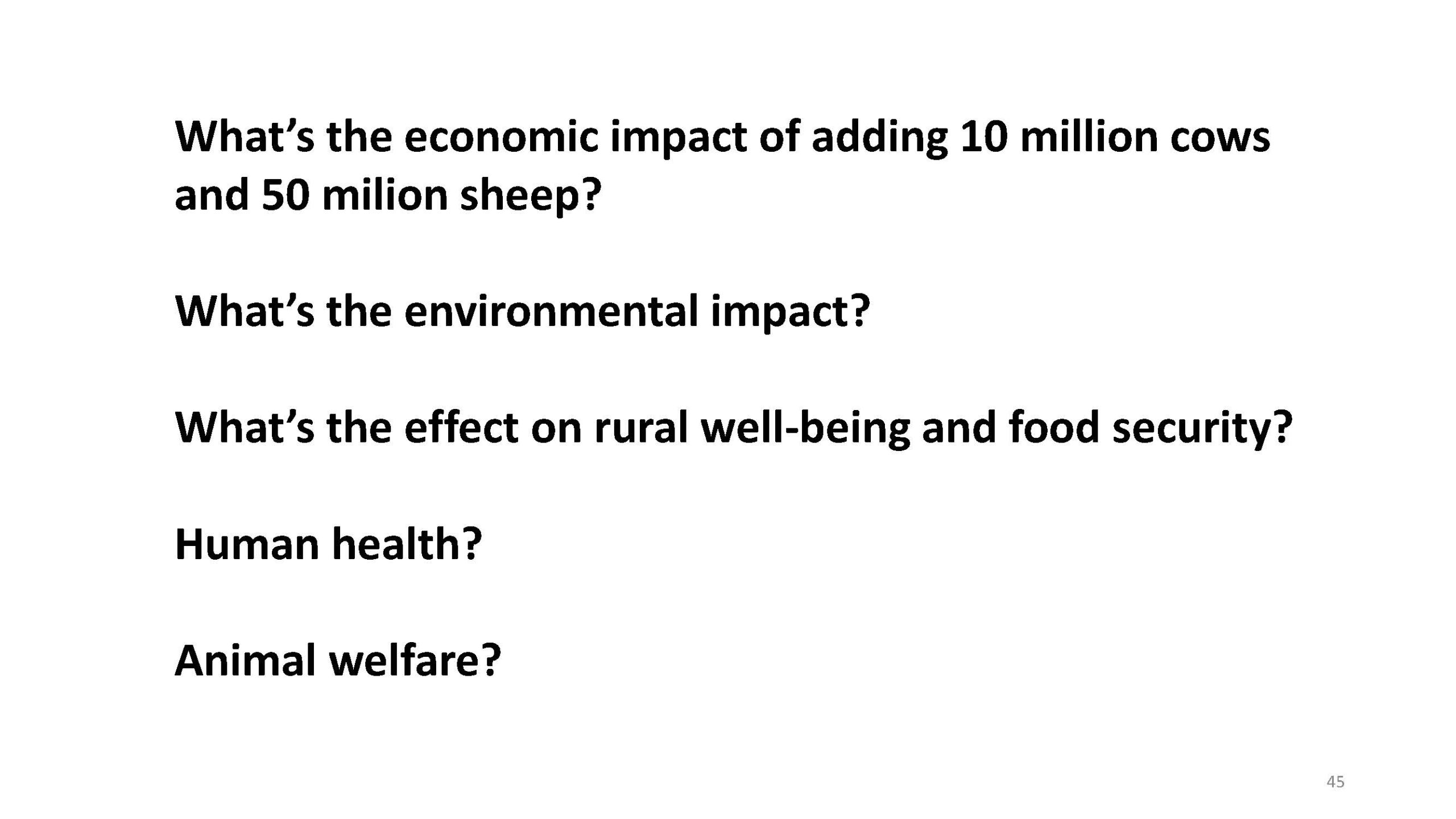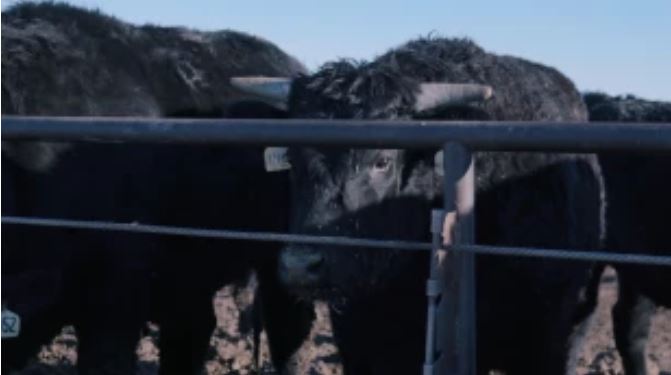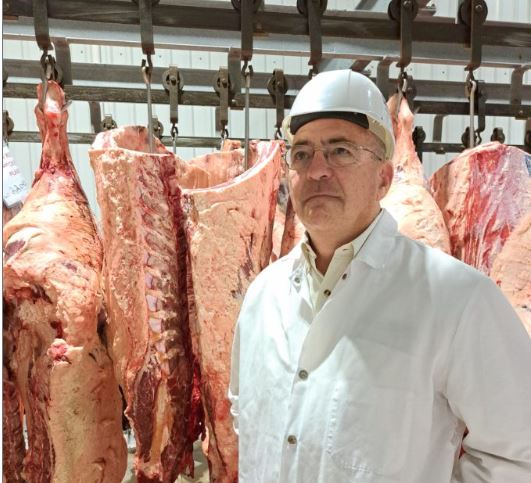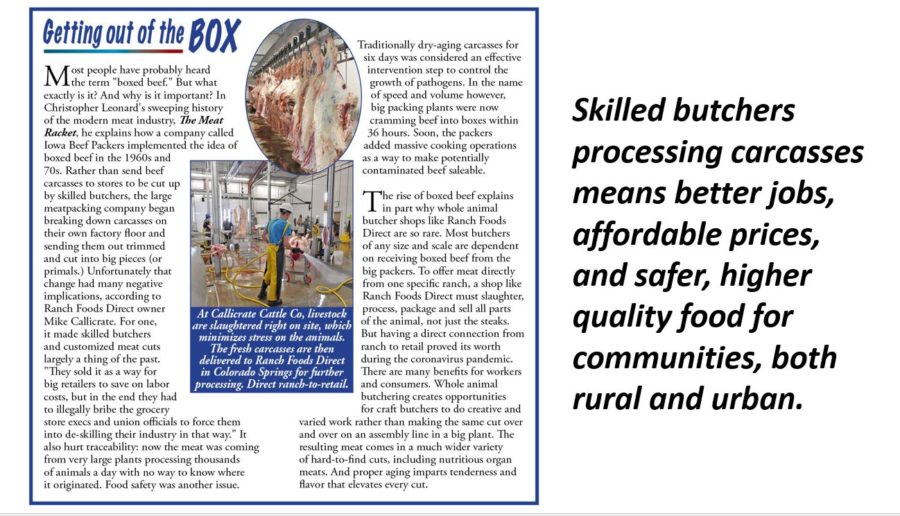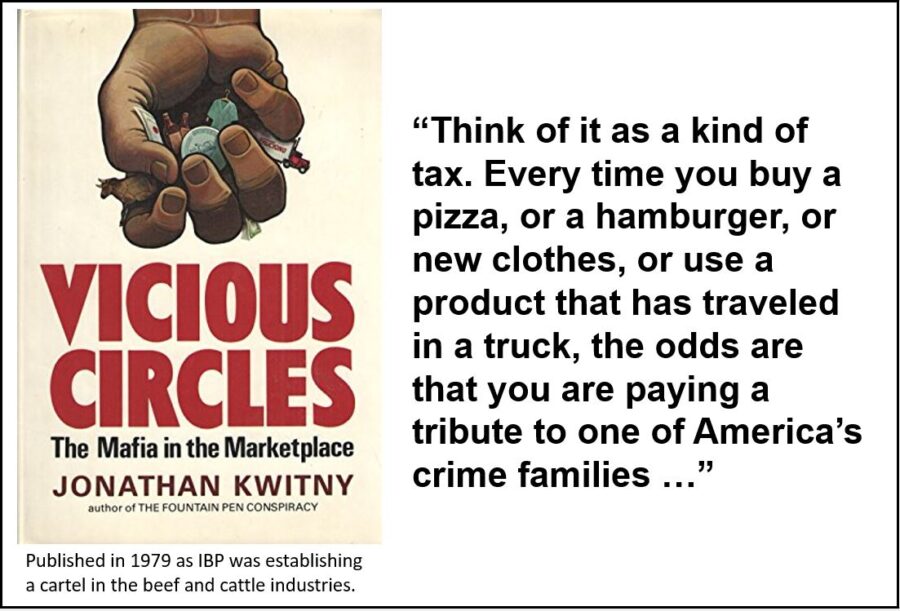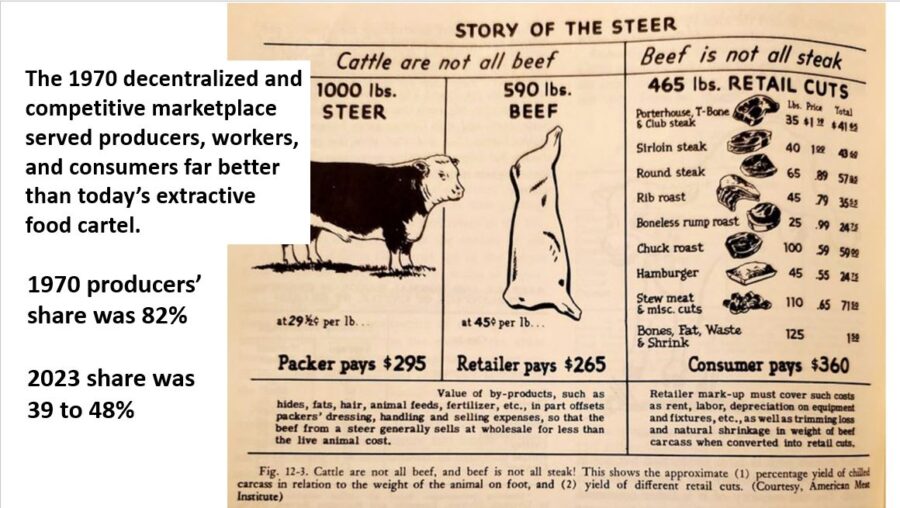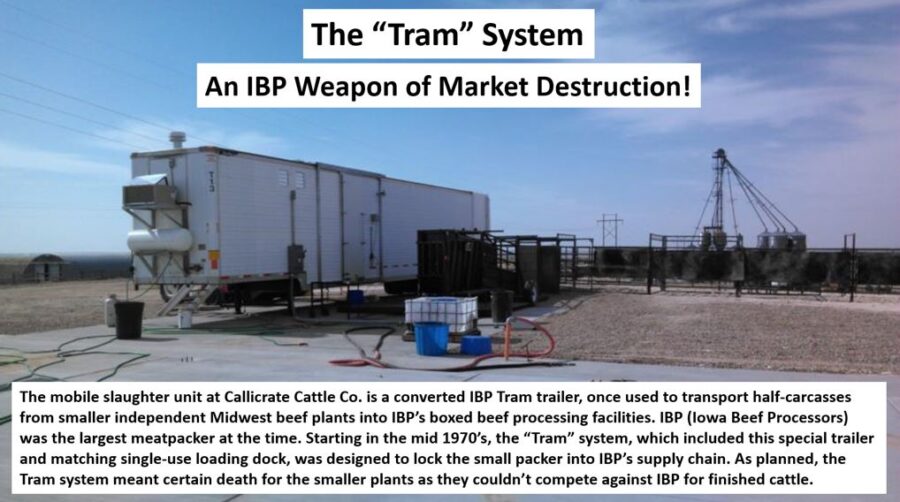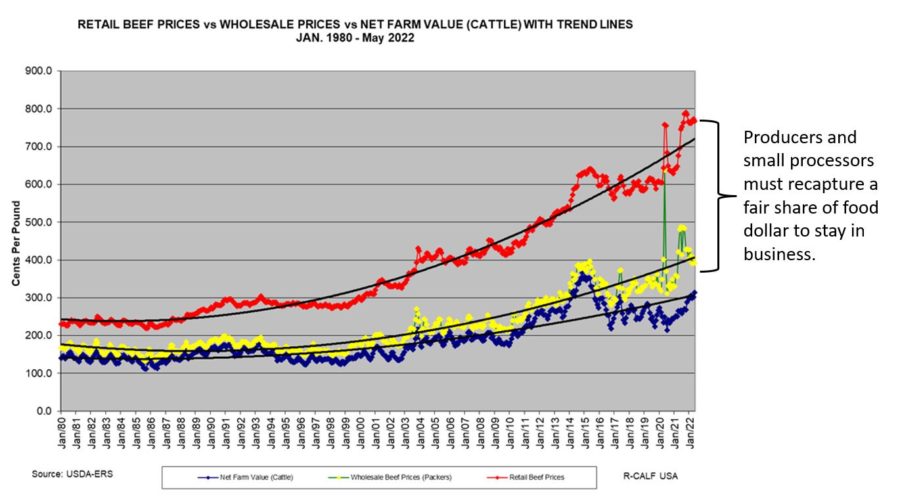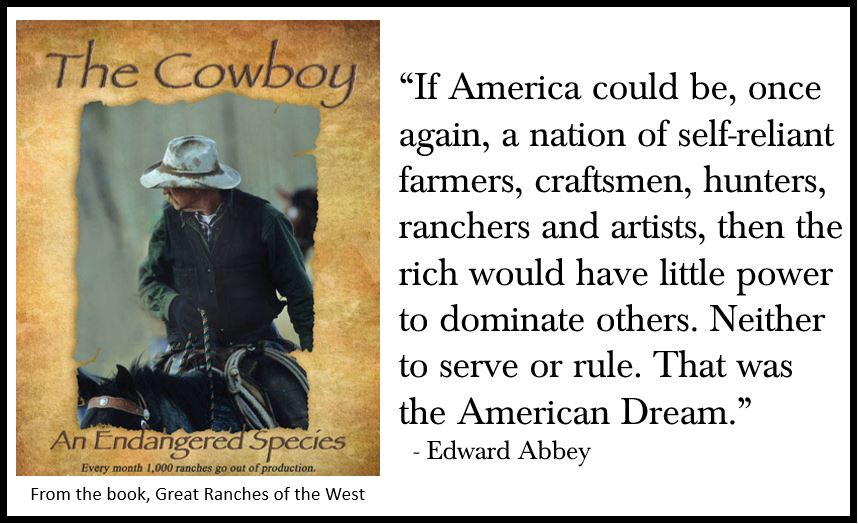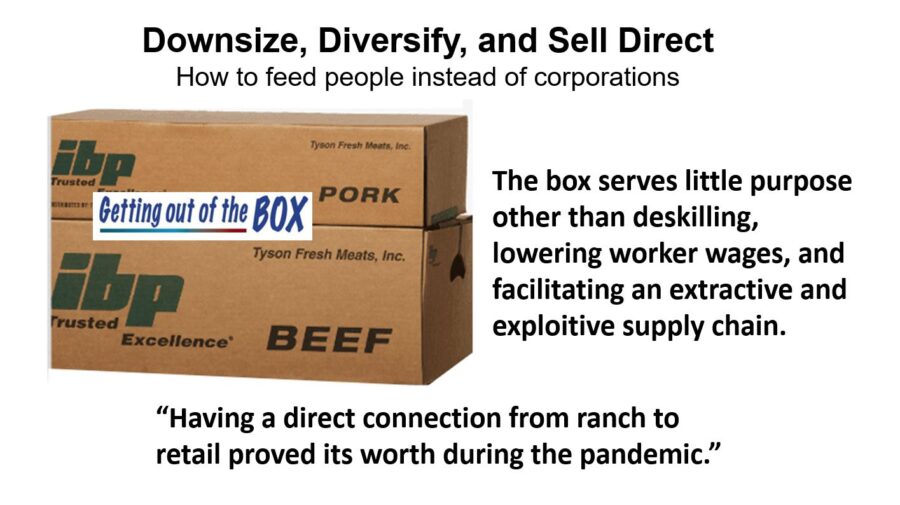Callicrate note: Several years ago, in a conversation with John, we discussed the use of a new term describing what I thought was a better kind of agriculture. Since “sustainable” had been stolen by big corporate ag, I suggested the word “regenerative” better described the kind of agriculture I wanted to practice. In an obvious effort to protect the meaning of an an important term, John asked, “Is it sustainable?”
After some thought, I realized the answer was no. Until we address the abusive market power of big corporations, family farmers and ranchers will be denied their fair share of the consumer dollar, and thereby the income required to be good stewards and husbandmen.
John Ikerd is perhaps the most insightful, thoughtful, and historically wise person I know regarding agriculture and food systems. John describes a transformational shift back to family farm agriculture is not only possible, but necessary. I agree!

By John Ikerd
The Harvard Business School defines transformational changes as “changes that are typically much grander in scope than incremental, adaptive changes. Very often, transformational change refers to a dramatic evolution of some basic structure of the business itself—its strategy, culture, organization, physical structure, supply chain, or processes.” I have lived and worked through a period of transformational change in American agriculture.
From my perspective, two factors are largely responsible for this transformation in American agriculture. The first was the new agricultural technologies that emerged following World War II. Tractors had begun to replace horses in some areas in the 1930s but didn’t do so in many areas until factories started turning out affordable farm tractors rather than the Jeeps and tanks needed during the war. We bought the first tractor for our farm when I was in high school.
“Affordable commercial fertilizers and pesticides, also byproducts of World War II, allowed farmers to abandon the crop rotations or integrated crop and livestock systems they had relied on to manage pests and maintain productivity.”
The number of tractors on farms in the U.S. tripled between 1940 and 1960, and the number of workhorses and mules dropped from 15 million to fewer than 5 million. Farmers specialized and expanded their operations to justify their investments in tractors and specialized farm equipment. Affordable commercial fertilizers and pesticides, also byproducts of World War II, allowed farmers to abandon the crop rotations or integrated crop and livestock systems they had relied on to manage pests and maintain productivity.
The new mechanical and chemical technologies not only allowed each farmer to produce more but also allowed farmers in total to produce more. The resulting surpluses in agricultural production depressed commodity prices to unprofitable levels, forcing reluctant farmers to adopt new cost-cutting technologies to survive. Farmers needed their own hay balers, grain combine harvesters, or field forage choppers to remain competitive. They also needed more land to justify these added investments. Agricultural economists called this the technology treadmill.
“Farmers no longer needed their neighbors to help them farm, but they needed their neighbors’ farms.”
Farmers no longer needed their neighbors to help them farm, but they needed their neighbors’ farms. The farmers who didn’t get big enough fast enough didn’t survive. They sold out or were forced out of farming—they fell off the treadmill. Many farmers in our community either fell off or never got on the technology treadmill; they moved elsewhere.
“Rather than addressing the out-migration of farmers as a problem, the policymakers saw it as an opportunity to transform agriculture.”
The second cause of the agricultural transformation was a fundamental change in U.S. farm policy. Rather than addressing the out-migration of farmers as a problem, the policymakers saw it as an opportunity to transform agriculture. In 1962, the Committee for Economic Development (CED), a prestigious business/academic think tank, assembled a subcommittee to address “the problem of agriculture.” The resulting report noted the rapid outmigration of farmers beginning in the 1930s, but concluded, “Nevertheless, the movement of people from agriculture has not been fast enough to take full advantage of the opportunities that improving farm technologies and increasing capital created for raising the living standards for the American people, including of course, farmers”
“The CED saw economic security for farmers as an impediment to the efficient use of resources.”
U.S. farm policies during the 1940s and 1950s had continued the commitments of the Agricultural Adjustment Act of 1938—the first farm bill. The stated purpose of the act was to provide economic security, or parity incomes, for family farmers as a means of “preserving, maintaining, and rebuilding the farm and ranch land resources in the national public interest.” The CED saw economic security for farmers as an impediment to the efficient use of resources. They proposed an “adaptive approach” that “utilizes positive government action to facilitate and promote movement of labor and capital where they will be most productive and will earn the most income”—meaning out of agriculture.
The CED report provided a blueprint for transformational changes in agricultural policies during the Nixon Administration with Earl Butz as secretary of agriculture during the 1970s. The new policies forced farmers to either “get big or get out.” Every farm bill since then has continued to incentivize and support the specialization, mechanization, and consolidation of farming into large industrial agricultural operations.
“As agricultural economists, our research and extension programs were designed to help farmers turn their farms into agribusinesses.”
By the time I received my Ph.D. in agricultural economics in 1970, I had been thoroughly indoctrinated into this new vision for the future of farming. While the universities claimed the technologies they developed and promoted could benefit all farmers, this was true only if farmers were willing to specialize, mechanize, and expand their farming operations. As agricultural economists, our research and extension programs were designed to help farmers turn their farms into agribusinesses.
“The farm policies of the 1980s were an experiment to see if large, specialized farms could survive without government assistance. They couldn’t.”
The changes in farm policy were necessary to continue the process of industrializing American agriculture. Large, specialized farming operations may be economically efficient, but they are also risky and vulnerable to economic collapse—as evidenced during the farm financial crisis of the 1980s and the COVID-19 crisis that started in 2020. The farm policies of the 1980s were an experiment to see if large, specialized farms could survive without government assistance. They couldn’t.
Government price supports, deficiency payments, subsidized crop and crop revenue insurance, guaranteed loans, and disaster payments are all means by which taxpayers have absorbed the risks of industrial agriculture. Without these government programs, the industrialization of agriculture likely would have slowed, and possibly reversed, during the 1970s and 1980s.
“… the keys to hastening another transformational change in American agriculture—from industrial to sustainable.”
I will close this perspective on agriculture column with what I feel are the keys to hastening another transformational change in American agriculture—from industrial to sustainable. First, the previous transformation was completed essentially in 50 years—between the early 1950s and the late 1990s. Few if anyone involved with agriculture in the 1950s could have imagined the large-scale, specialized, mechanized, corporately controlled farming operations of the 1990s. The changes before and after this period were incremental, rather than transformational. Agriculture by 2075 could be dramatically different from anything that seems remotely possible today.
“… our understanding and knowledge of sustainable alternatives to industrial agriculture today are far more advanced than our knowledge of industrial agriculture in the 1950s.”
Second, our understanding and knowledge of sustainable alternatives to industrial agriculture today are far more advanced than our knowledge of industrial agriculture in the 1950s. Many of the environmental and social costs of industrial agriculture were a result of people doing things without knowing the consequences of what they were doing. Farmers today have access to research on soil health, cover crops, crop rotations, and integrated crop and livestock systems of the pre-industrial era as well as the formal and experiential research of academics and organic and sustainable farmers over the past 50 years and even earlier.
“Perhaps what is needed is another prestigious think tank, like the CED, that understands the need for policies to support a post-industrial agriculture—an ecologically sound, socially responsible, economically viable agriculture.”
Third, with the technical knowledge in place, a transformational change in farm policies could trigger a transformation in agriculture similar to that of the 1970s. Perhaps what is needed is another prestigious think tank, like the CED, that understands the need for policies to support a post-industrial agriculture—an ecologically sound, socially responsible, economically viable agriculture. This think tank could make the ecological and social case that we have too few farmers, rather than too many, and propose farm policies that support more farmers who are committed to taking care of the land for the long-run benefit of society as well as themselves.
Finally, a return to vigorous enforcement of antitrust laws could transform the balance of economic and political power, including the power to transform farm policy. The U.S. was faced with a similar situation of concentrated economic and political power in the early 1900s. Monopolies of the time, such as Andrew Carnegie’s U.S. Steel Company and John D. Rockefeller’s Standard Oil Company were powerful politically and well economically. Five U.S. beef-packing companies controlled up to 75% of the market.
“… corporate control of markets was reversed by a progressive populist movement that demanded fundamental change. It can and must happen again.”
The trend toward corporate control of markets was reversed by a progressive populist movement that demanded fundamental change. It can and must happen again. My perspectives on this and other aspects of the agri-food system will be the focus of my next column. Ultimately, agri-food sustainability is not an option; it is a necessity.
A longer, more detailed version of this post with references is available at the JAFSCD link below.
https://www.foodsystemsjournal.org/index.php/fsj/article/view/1220

